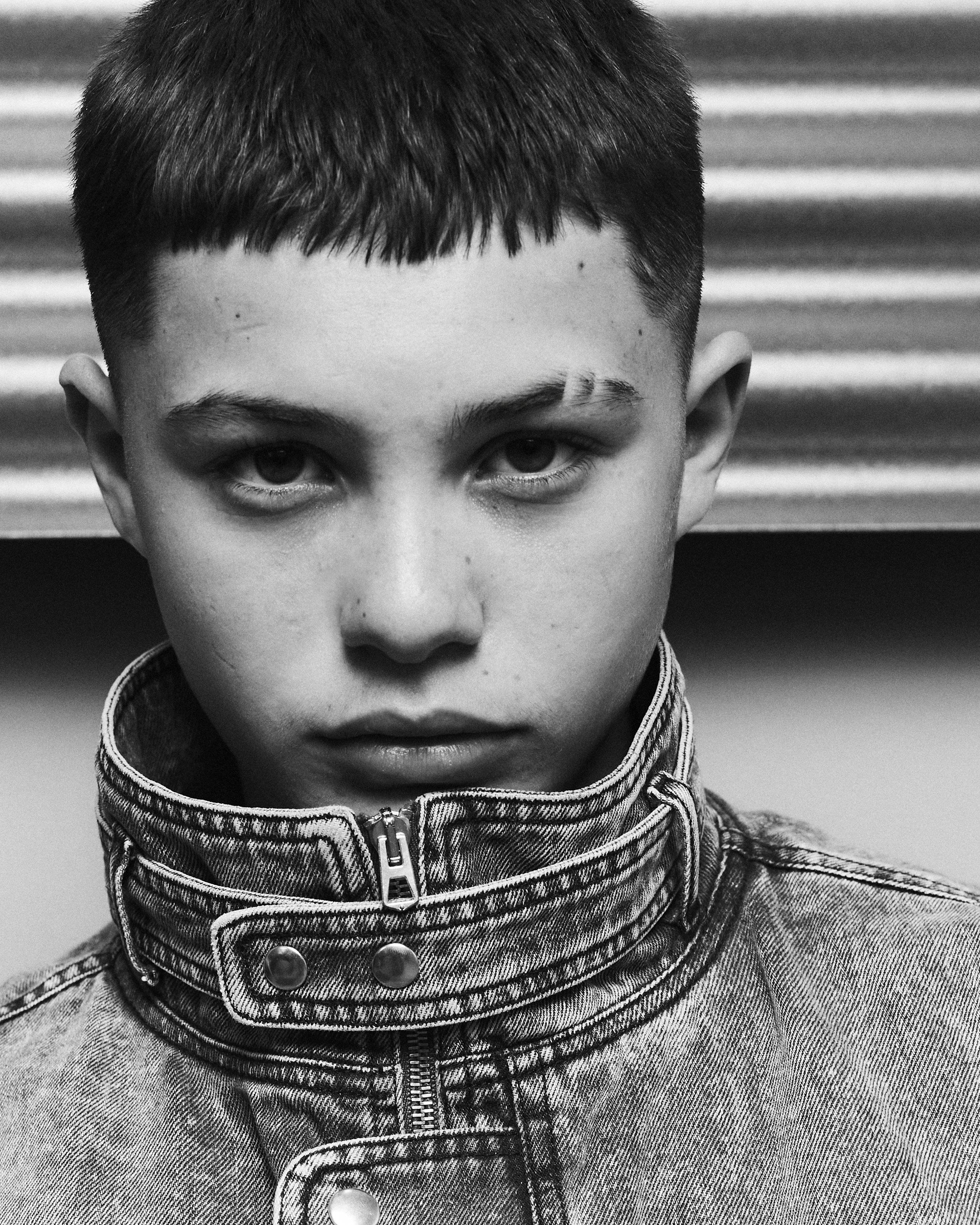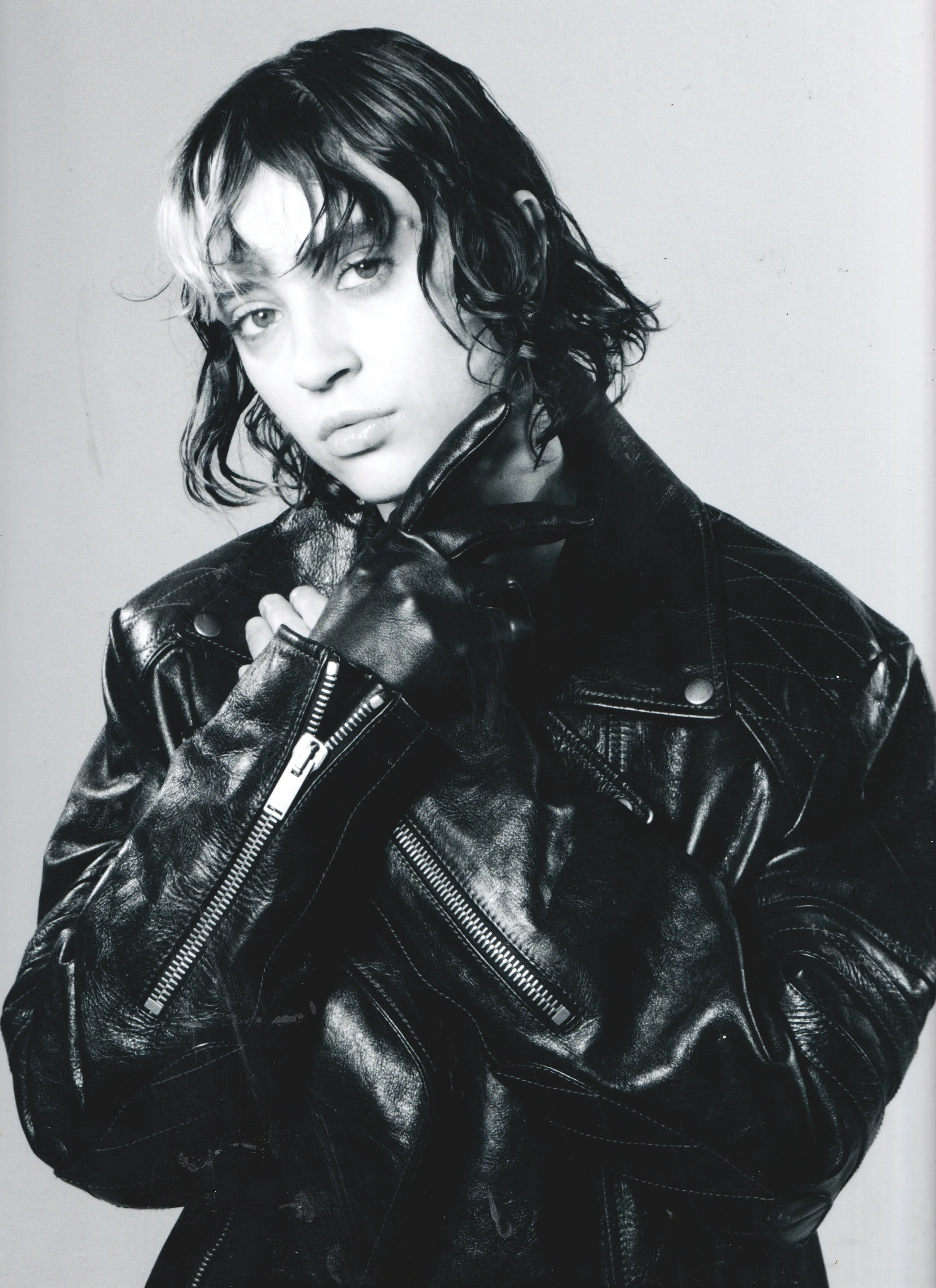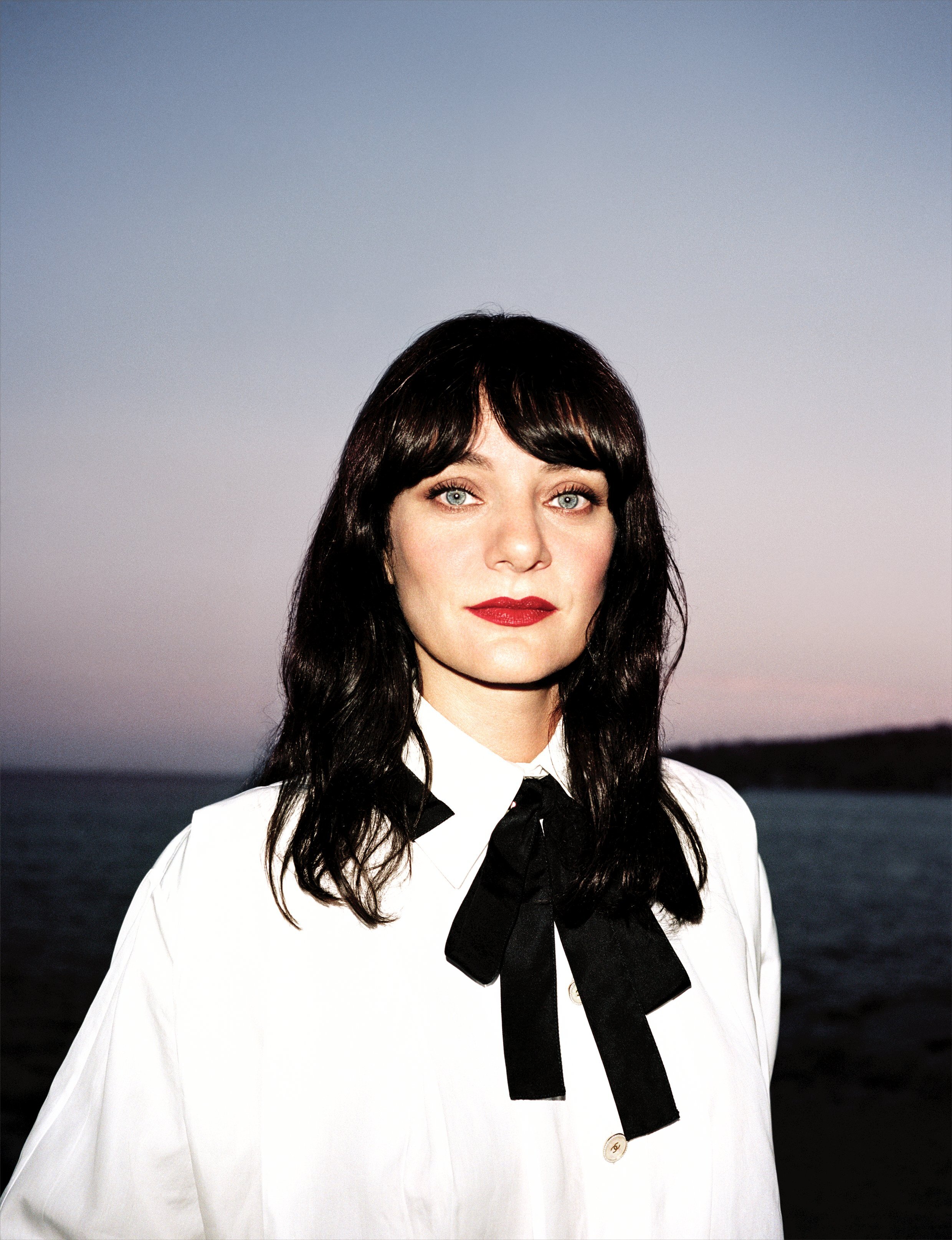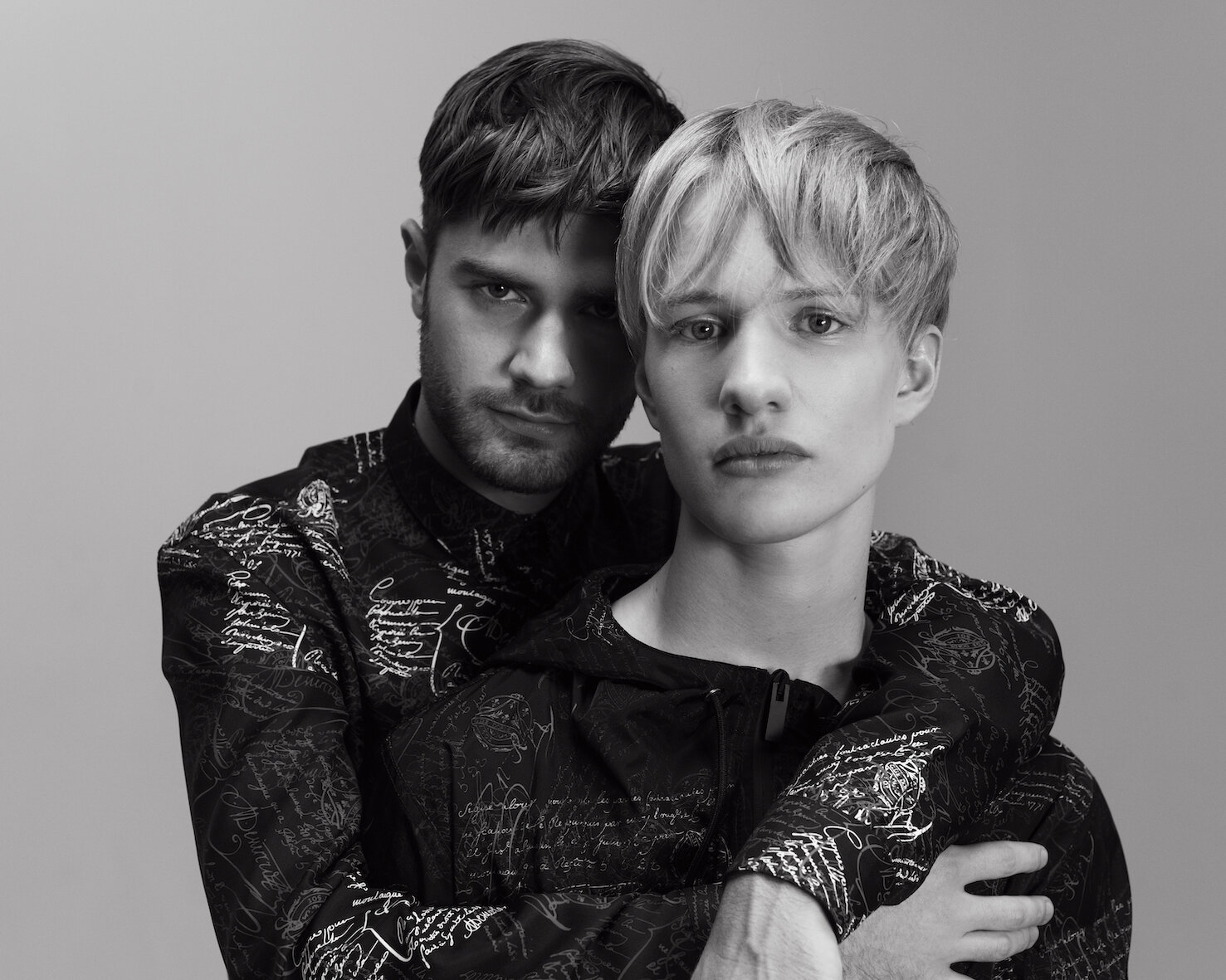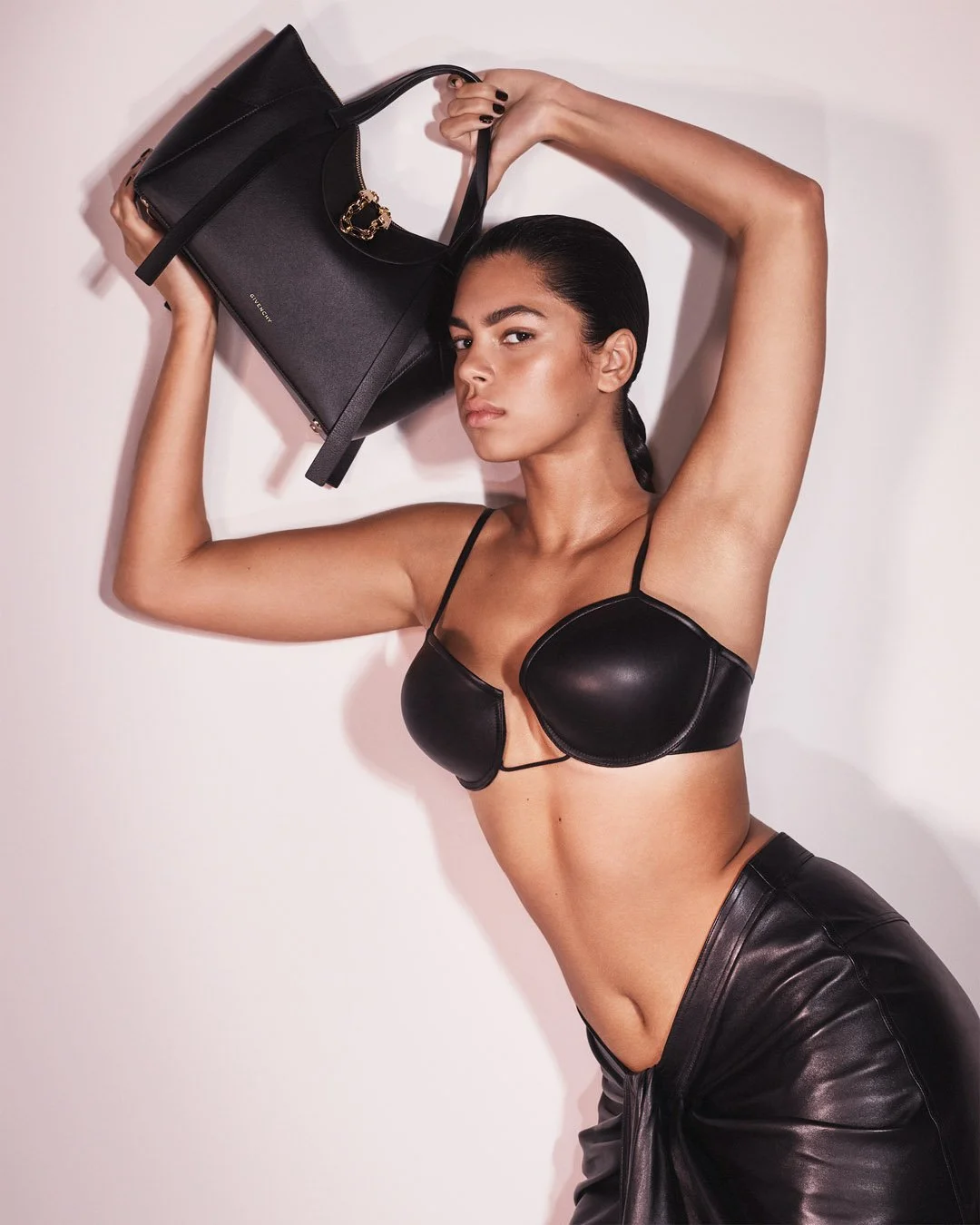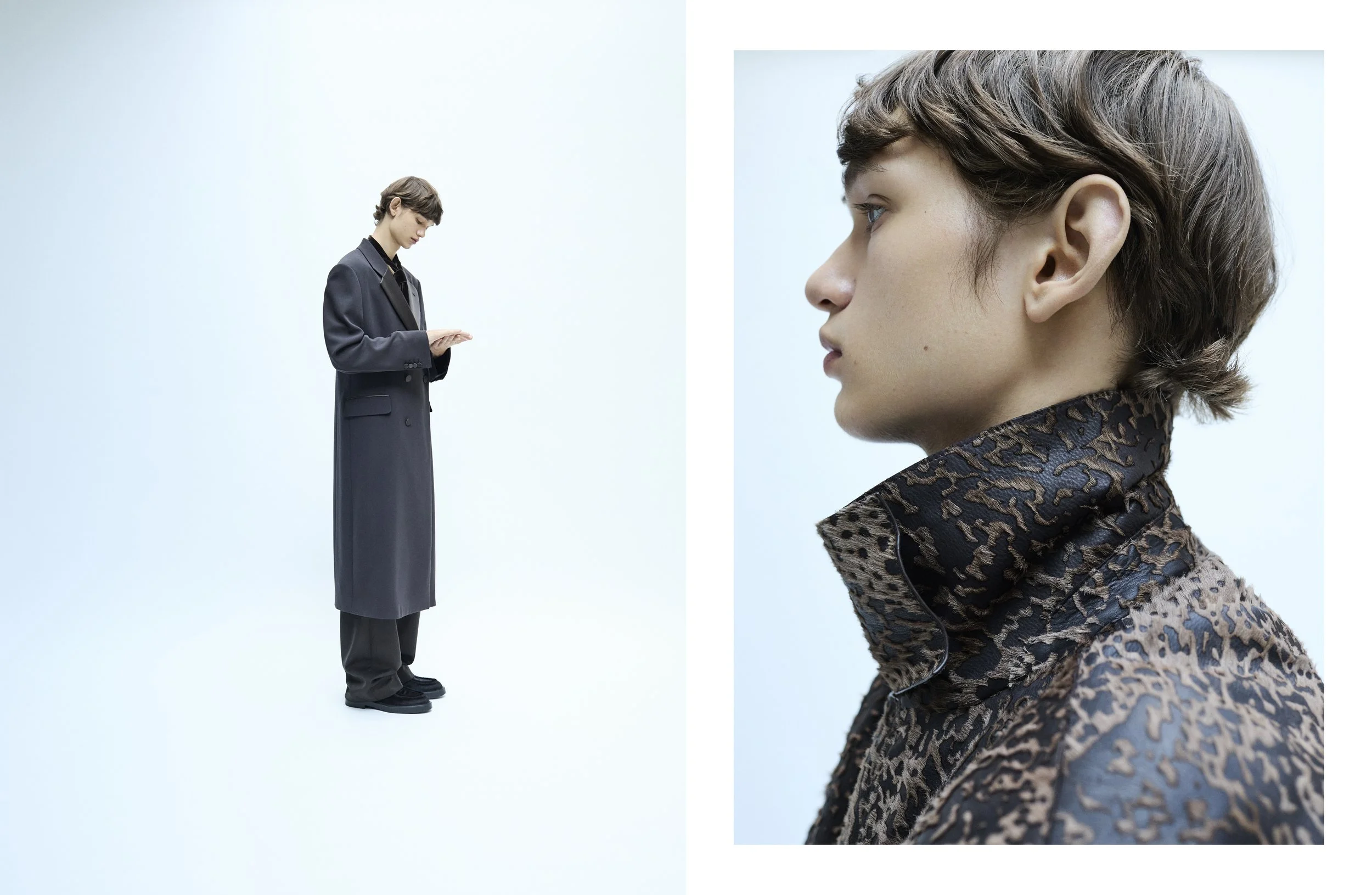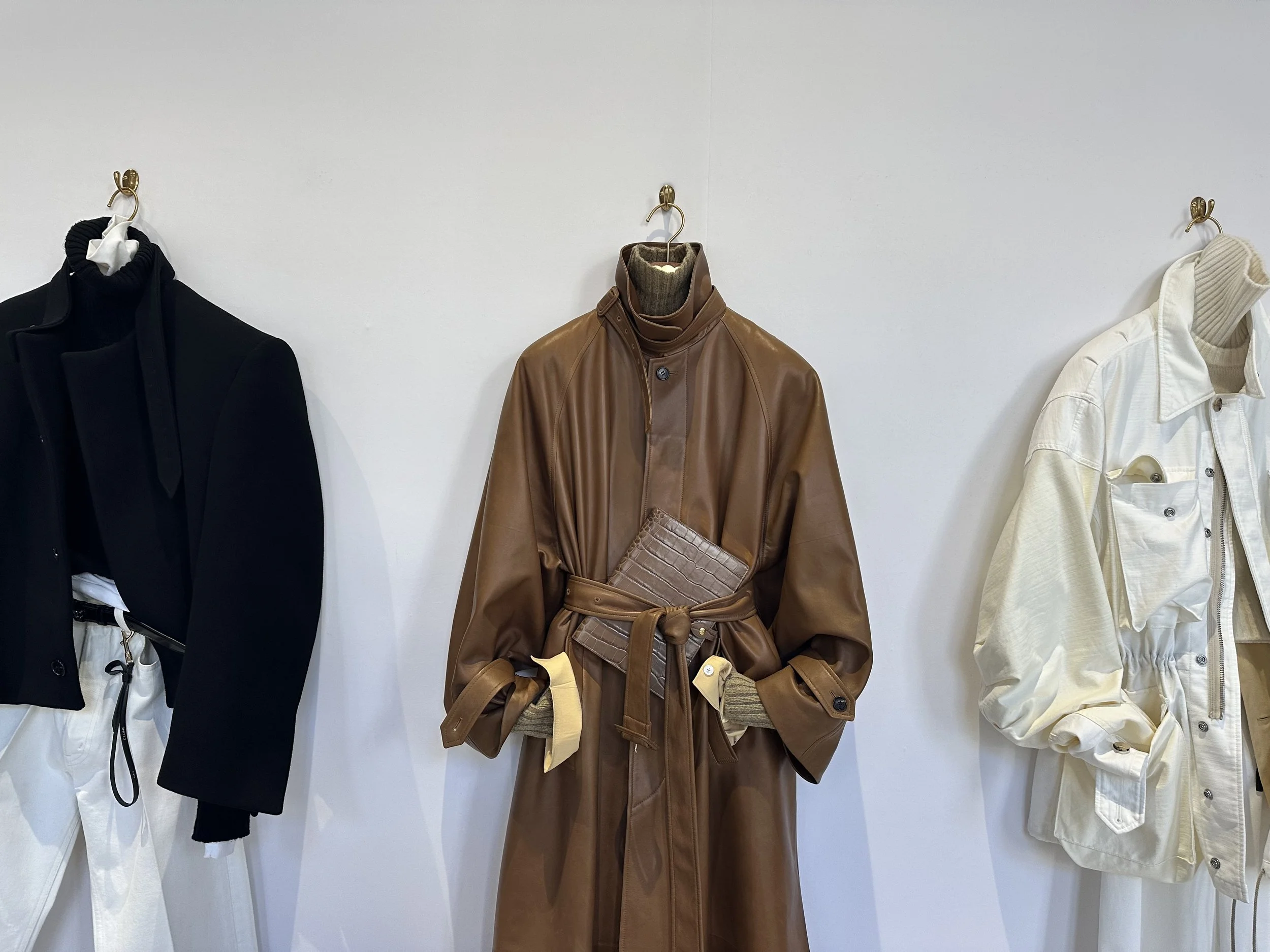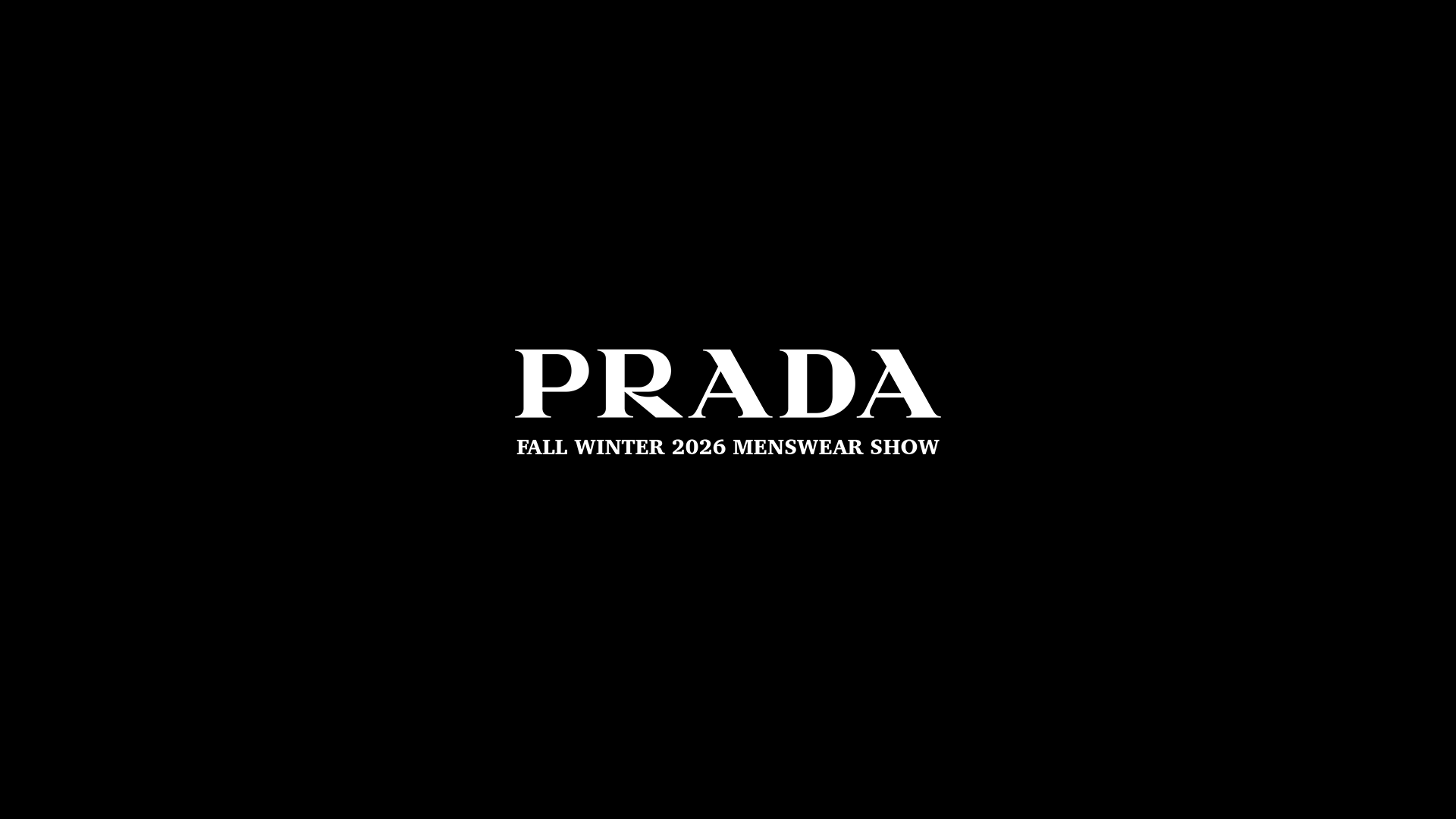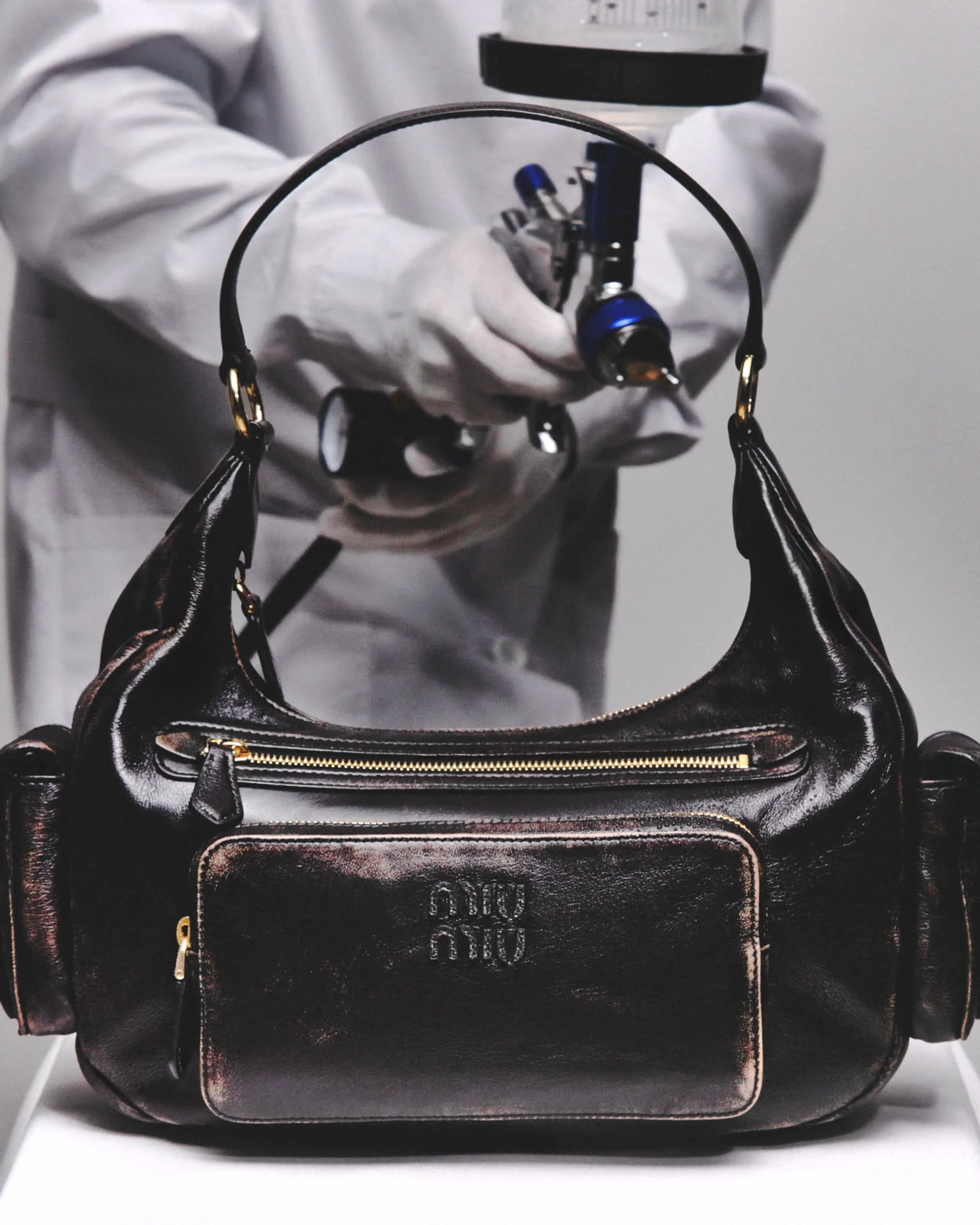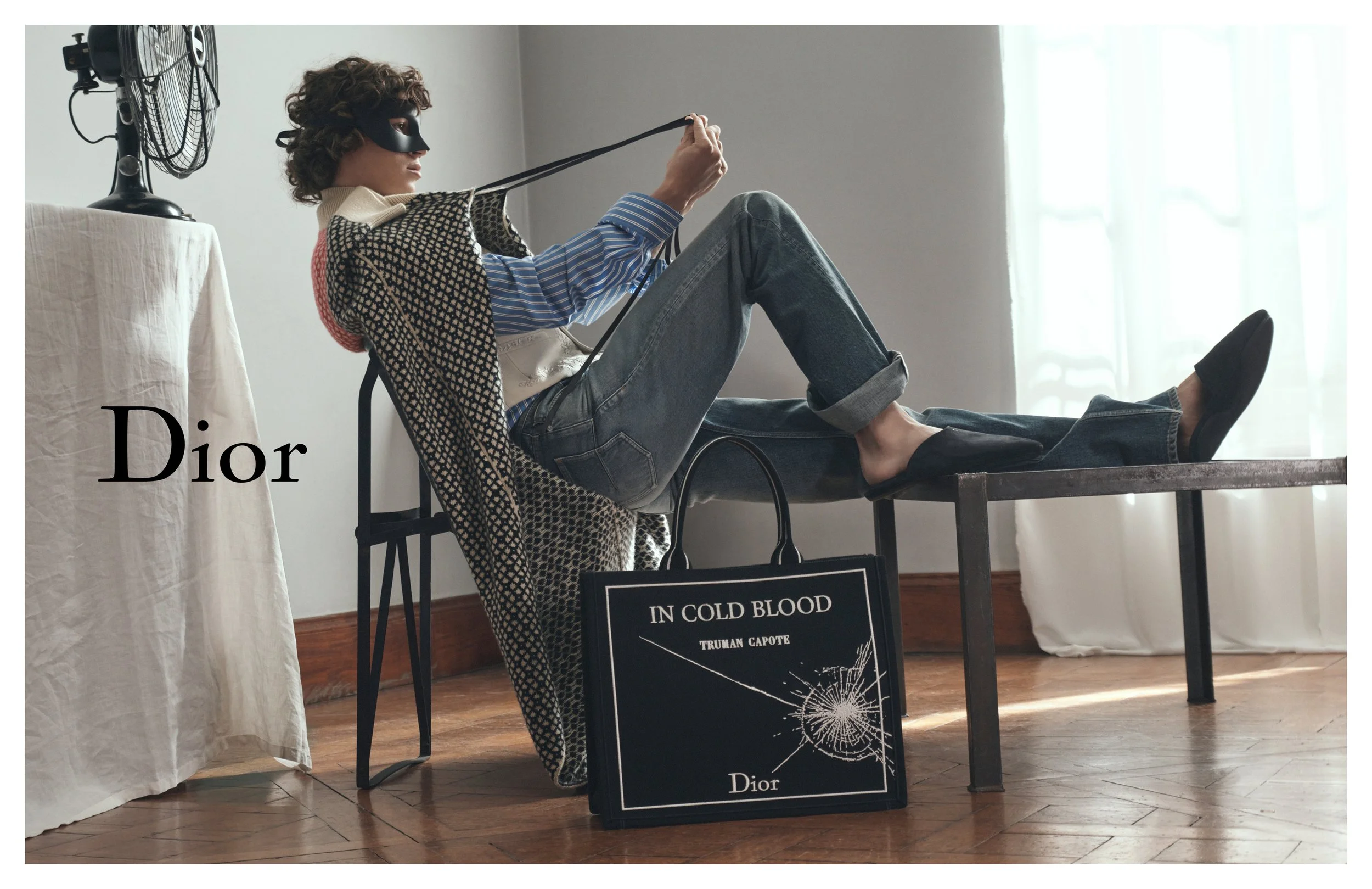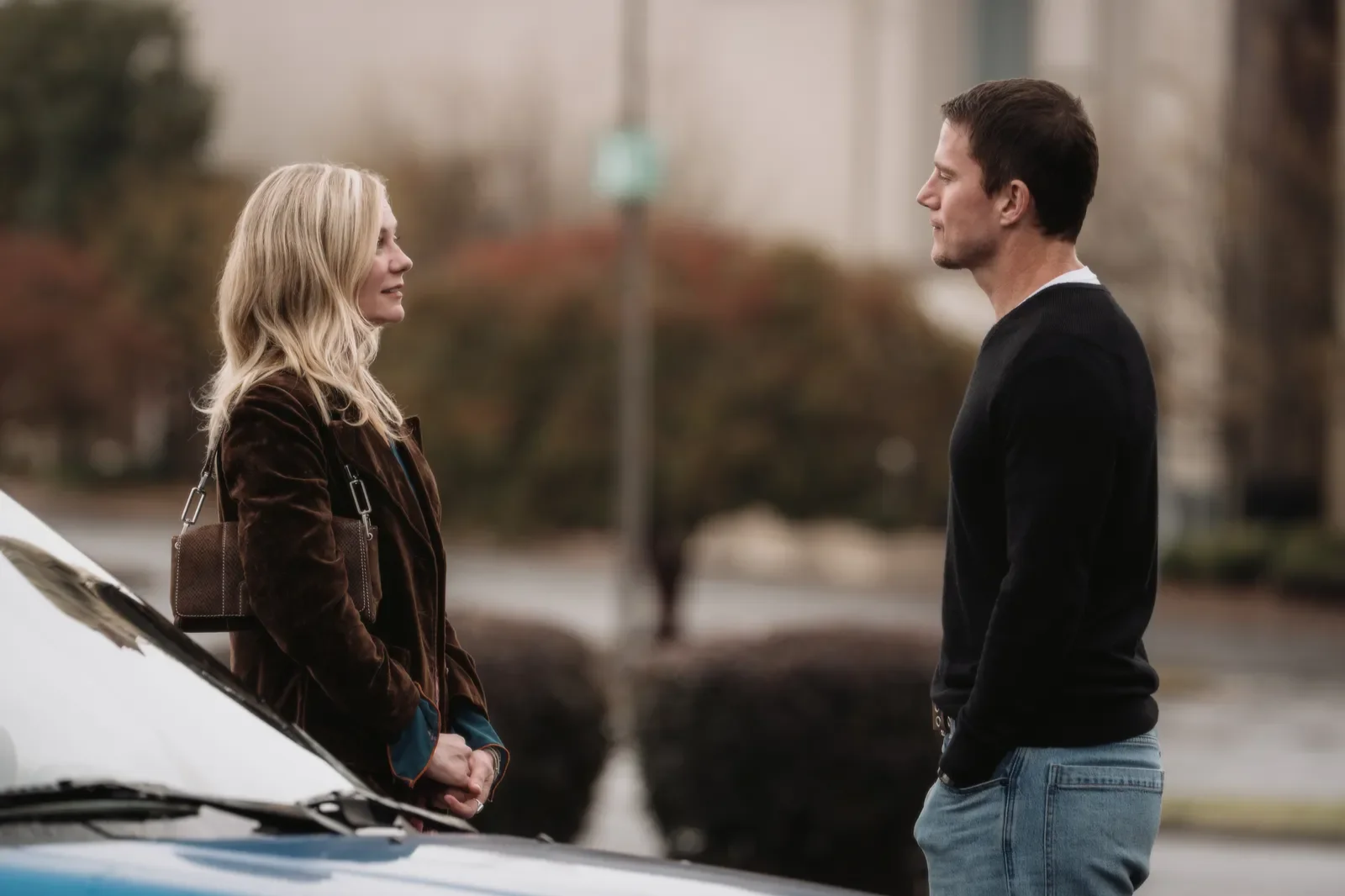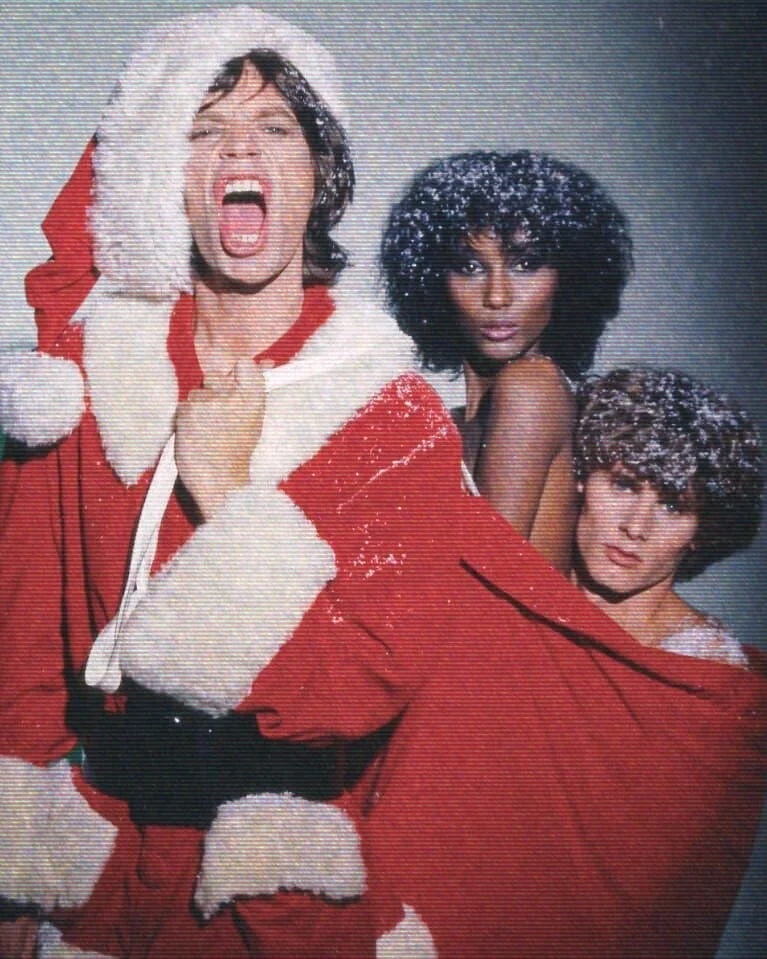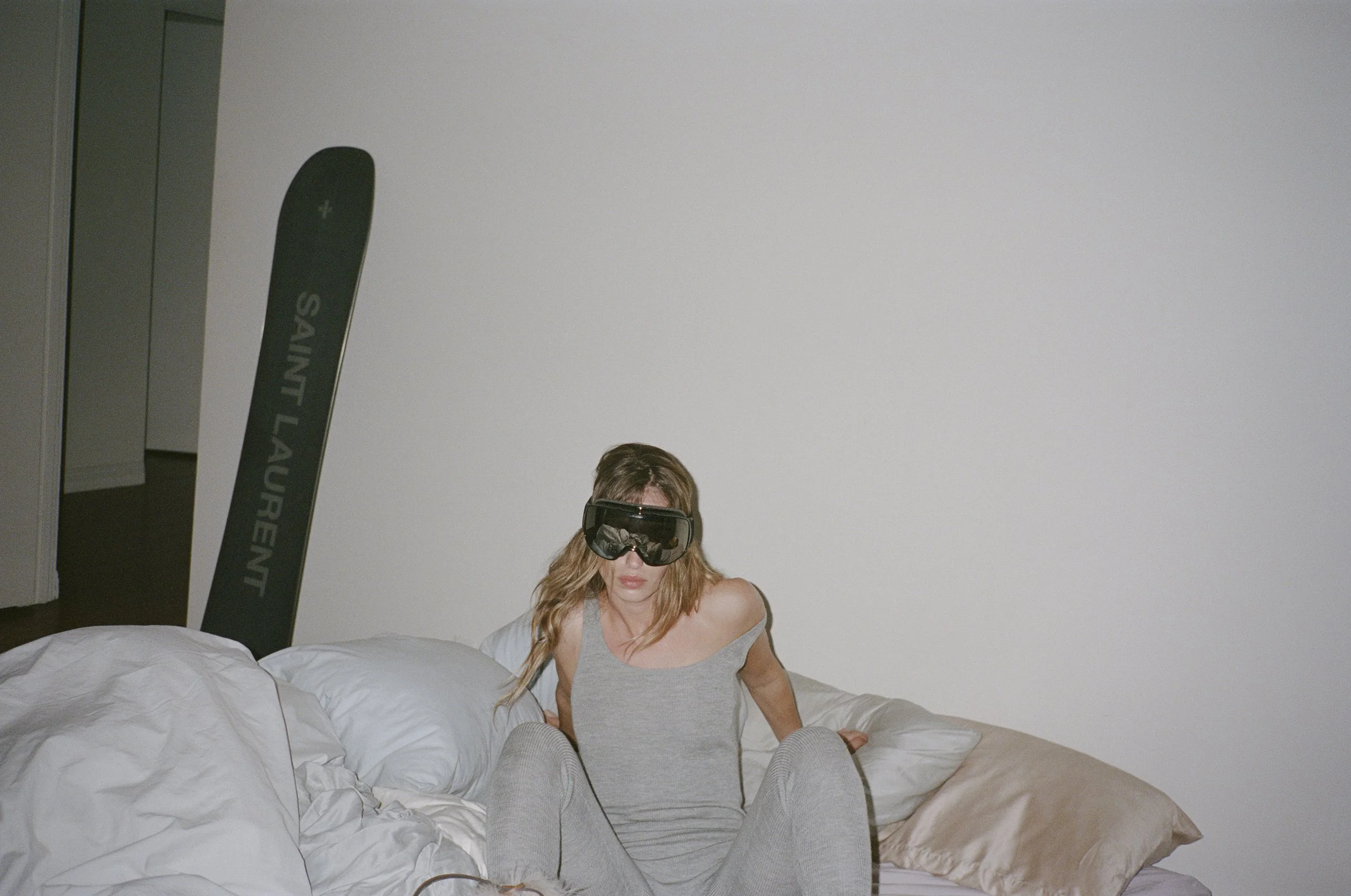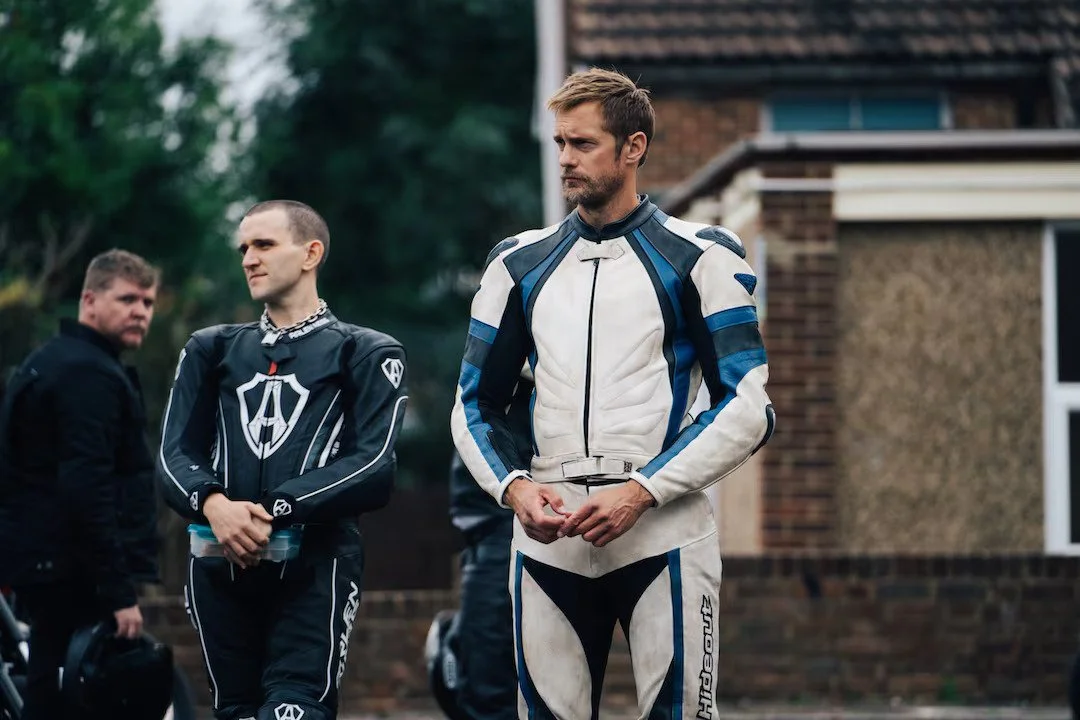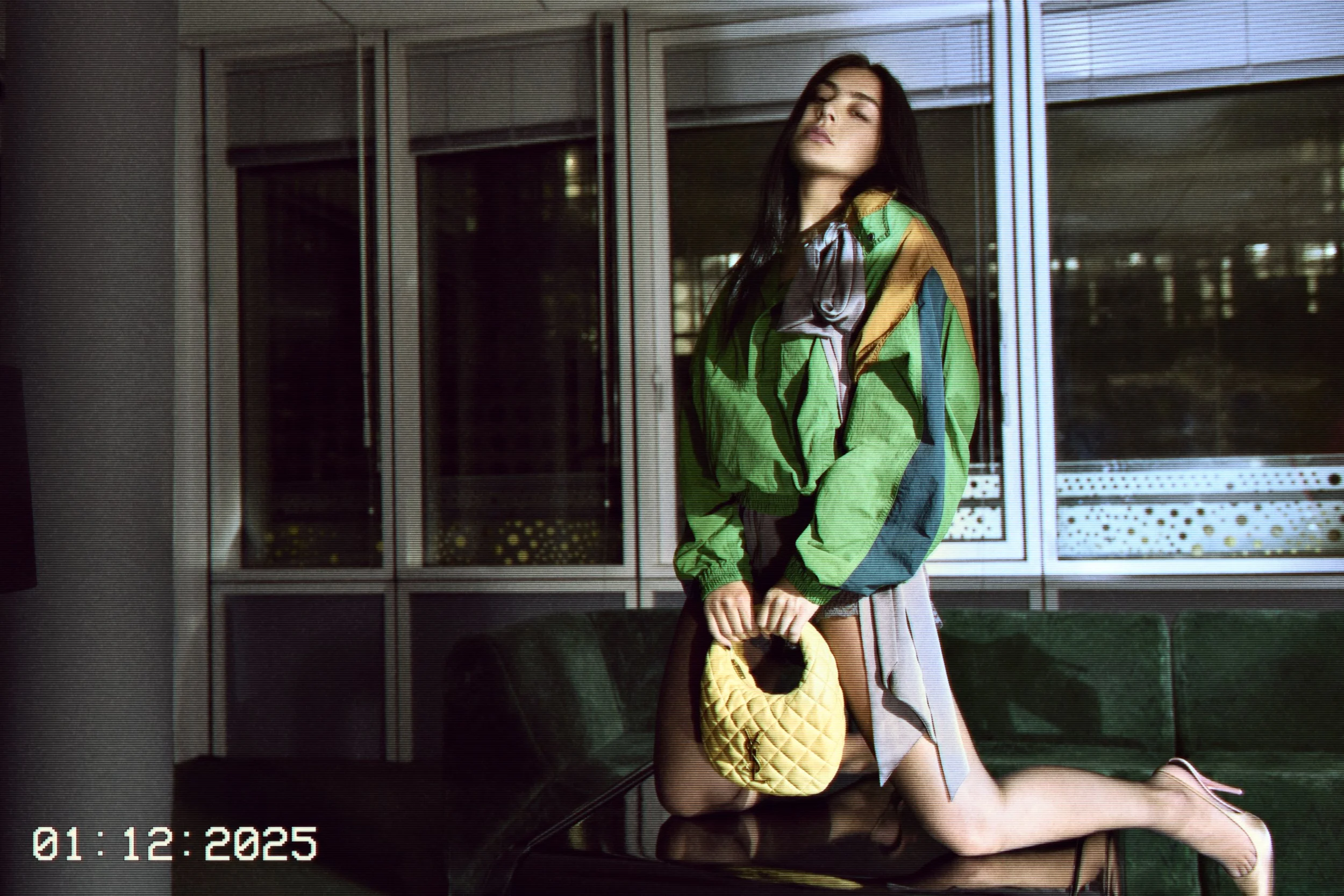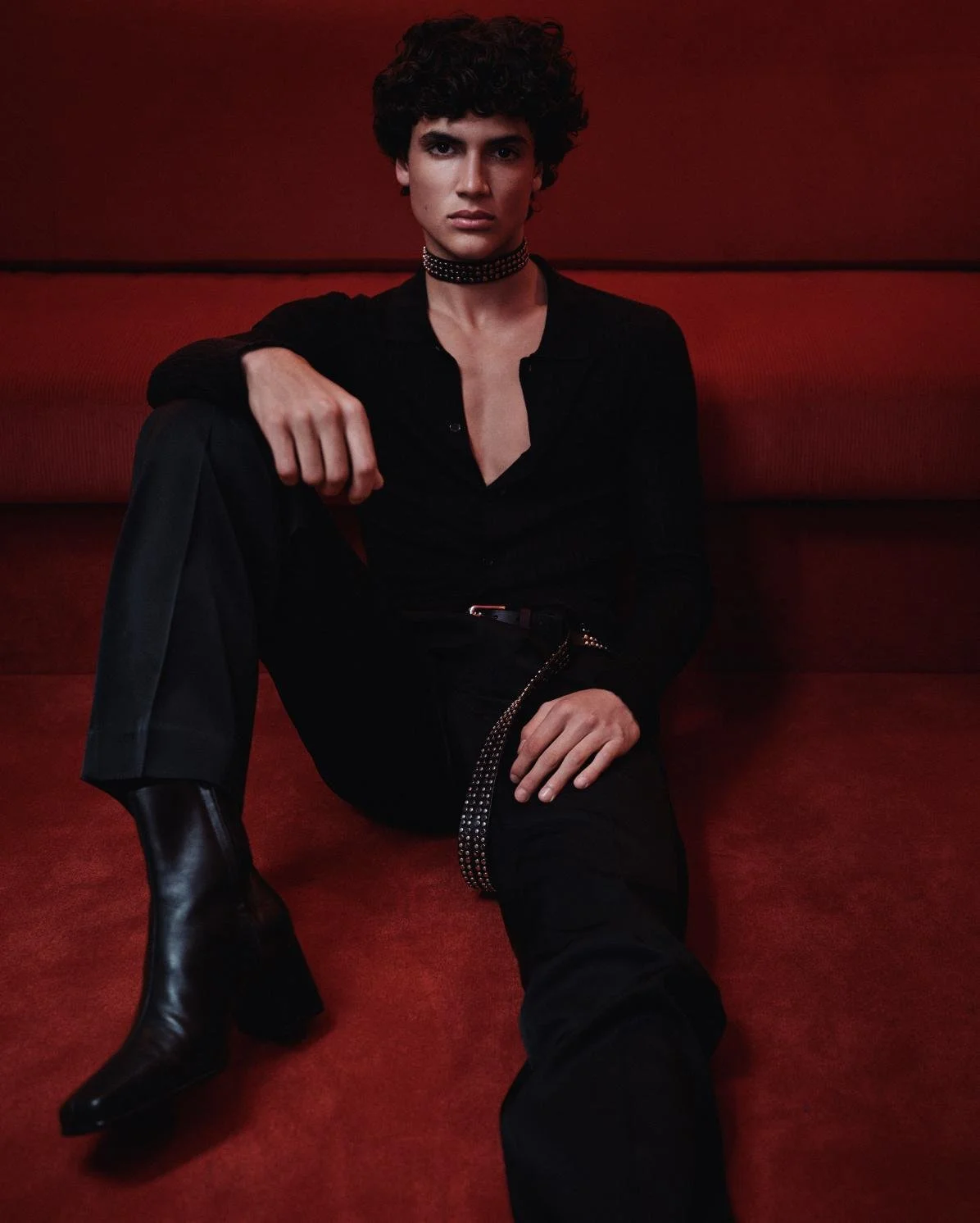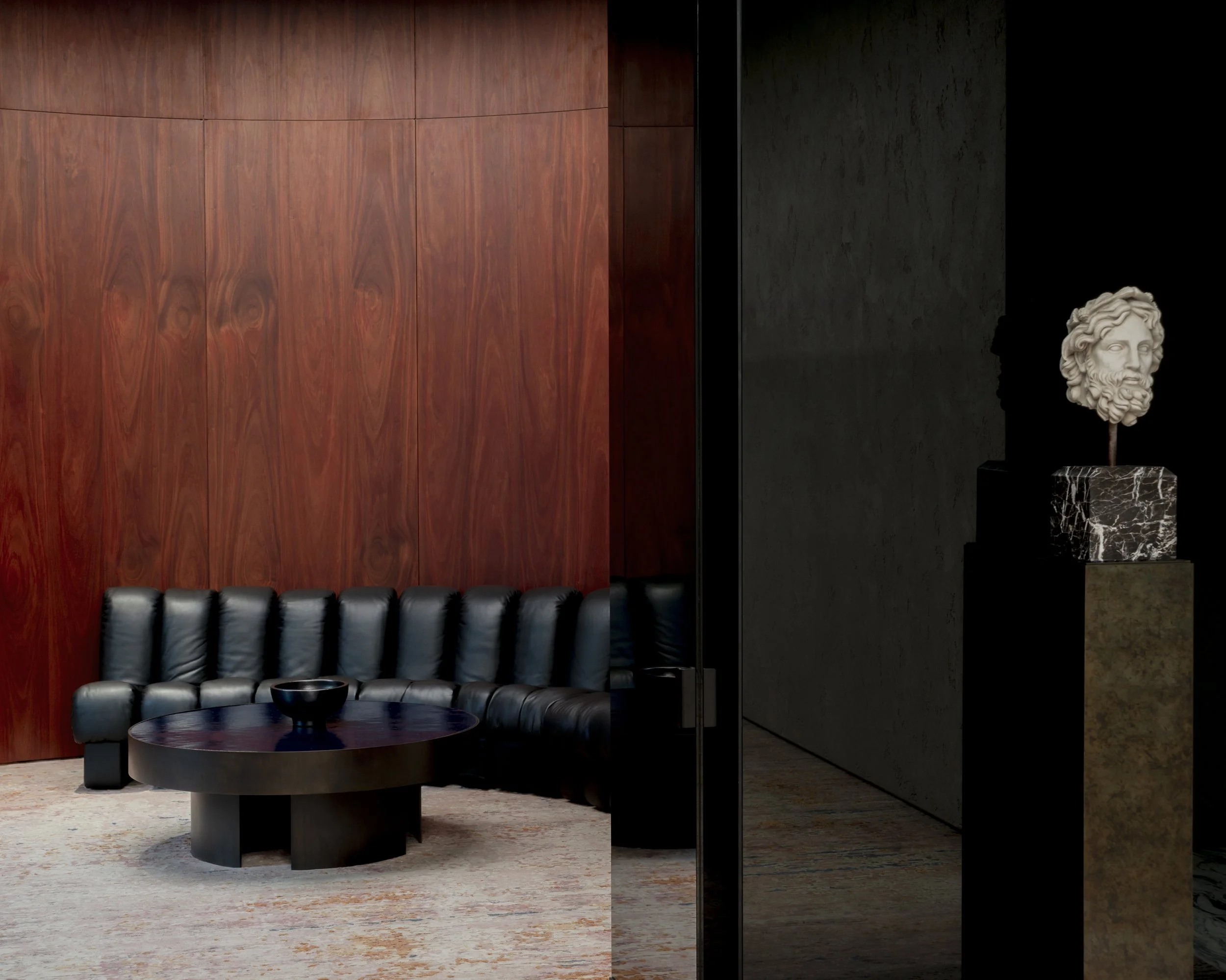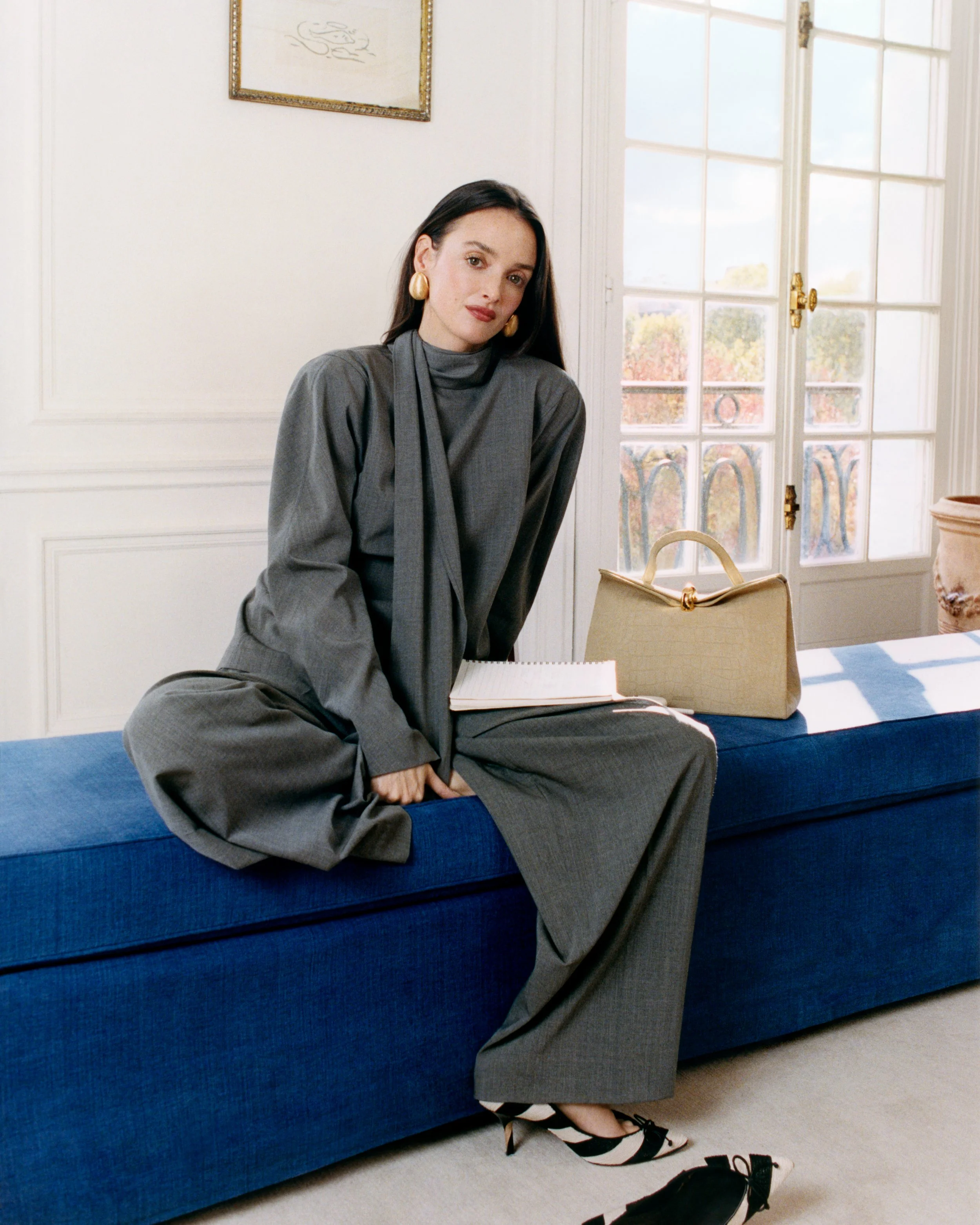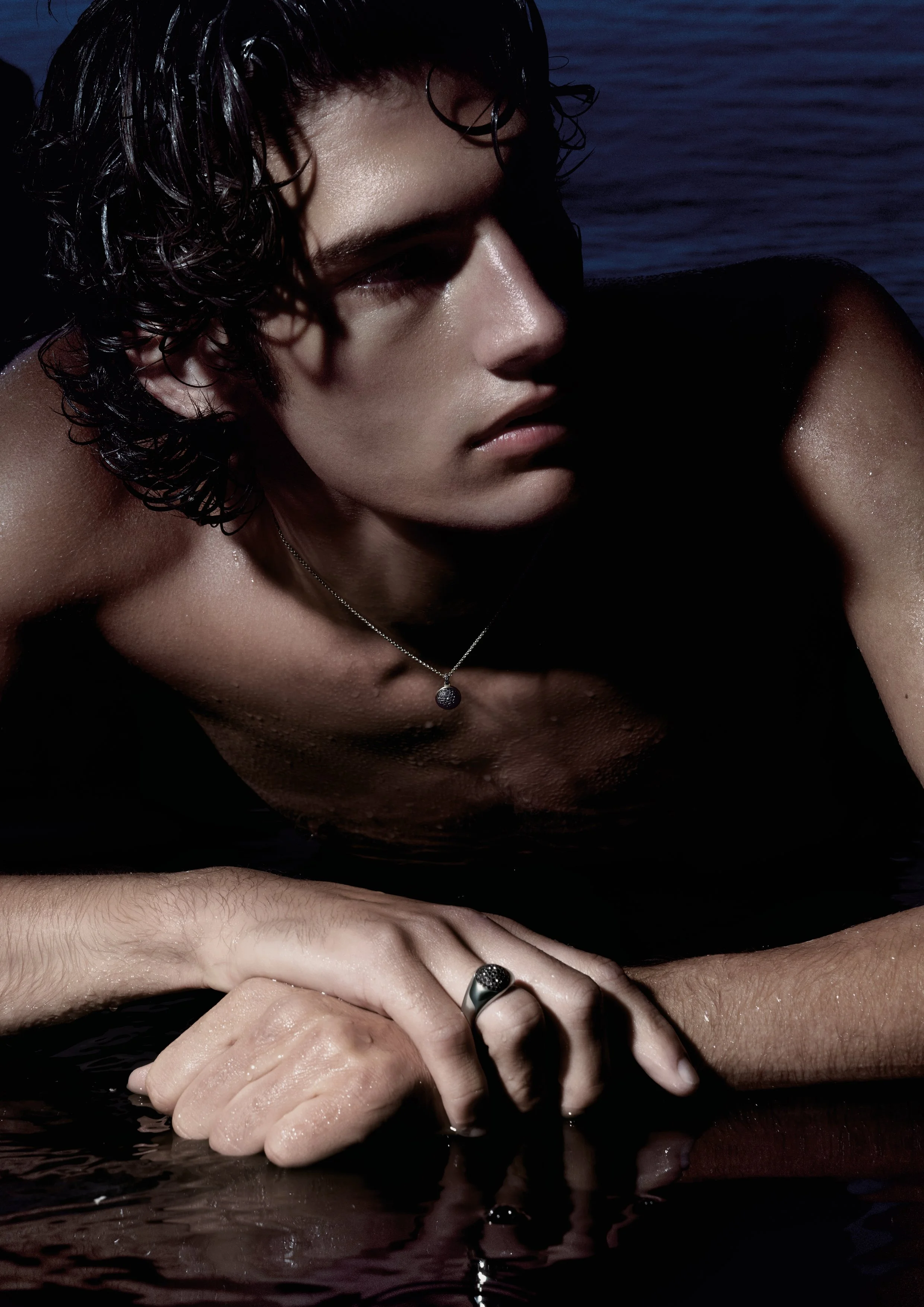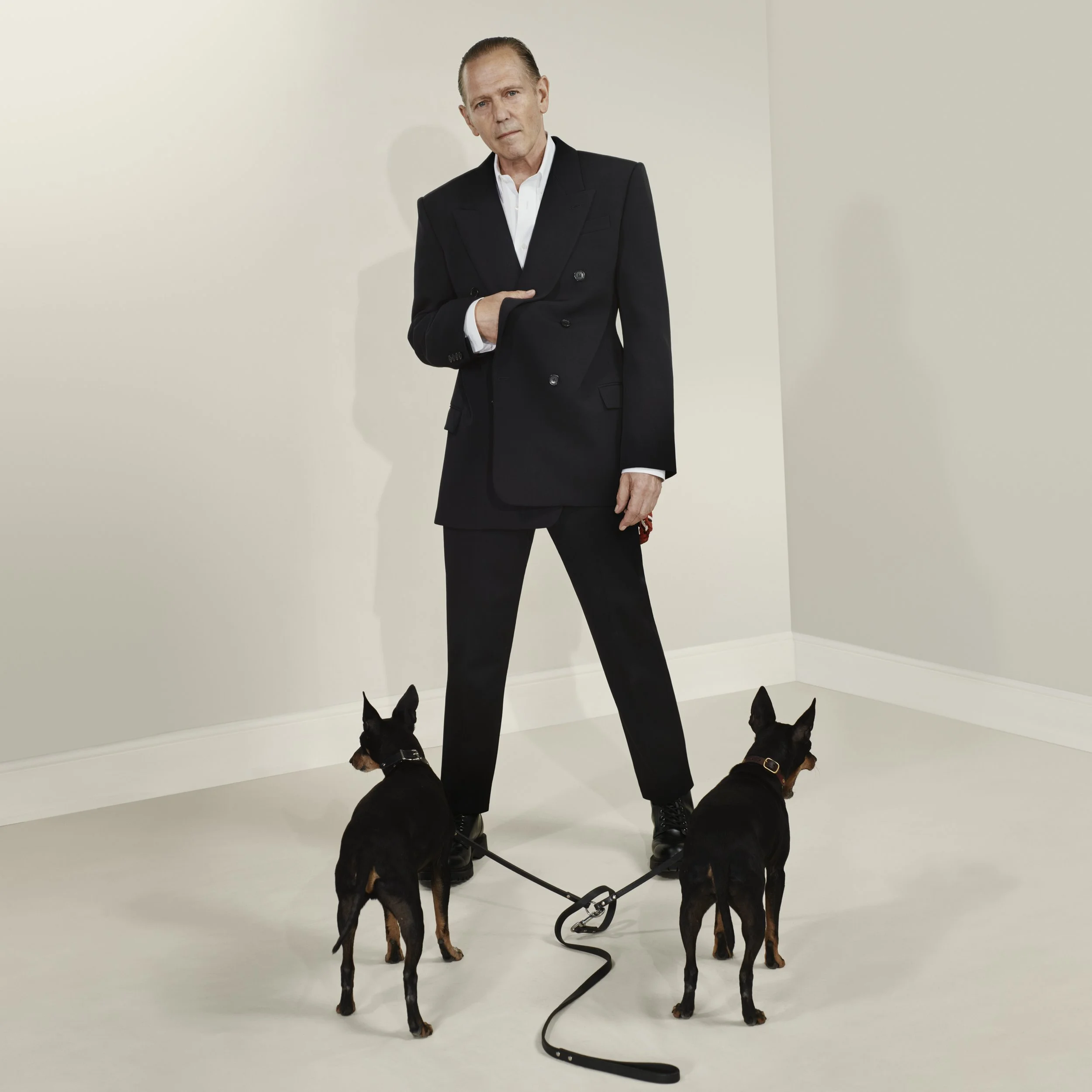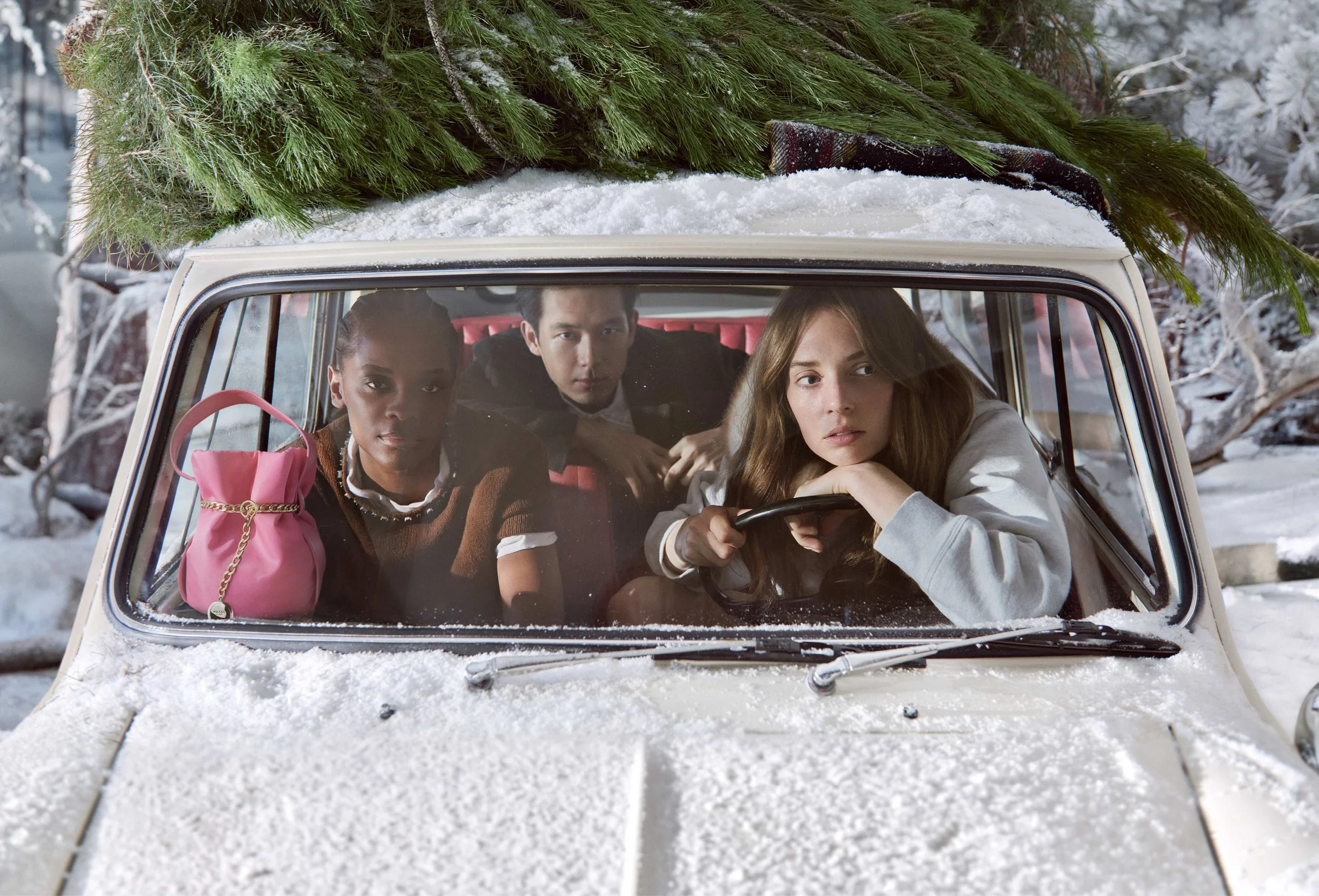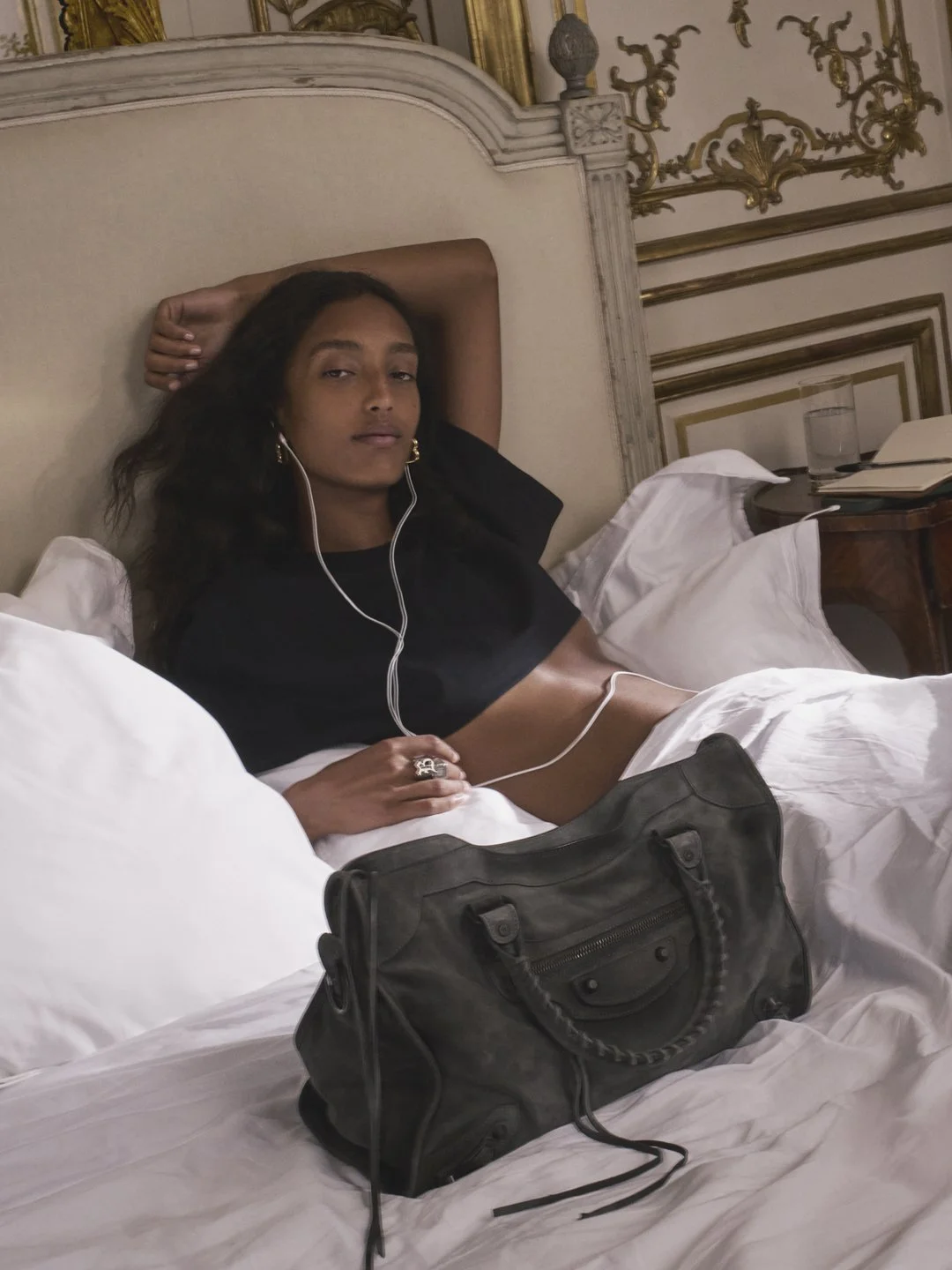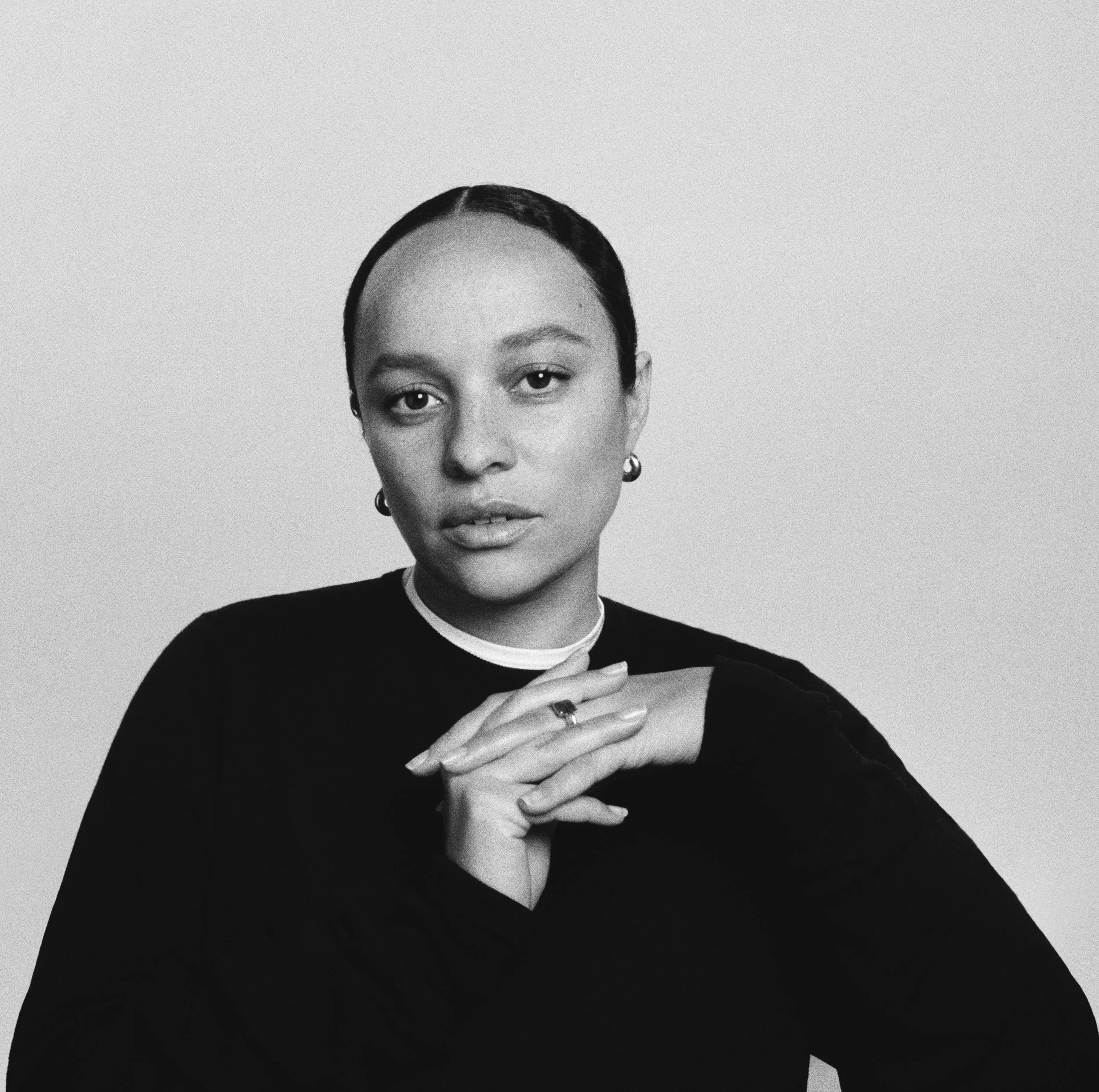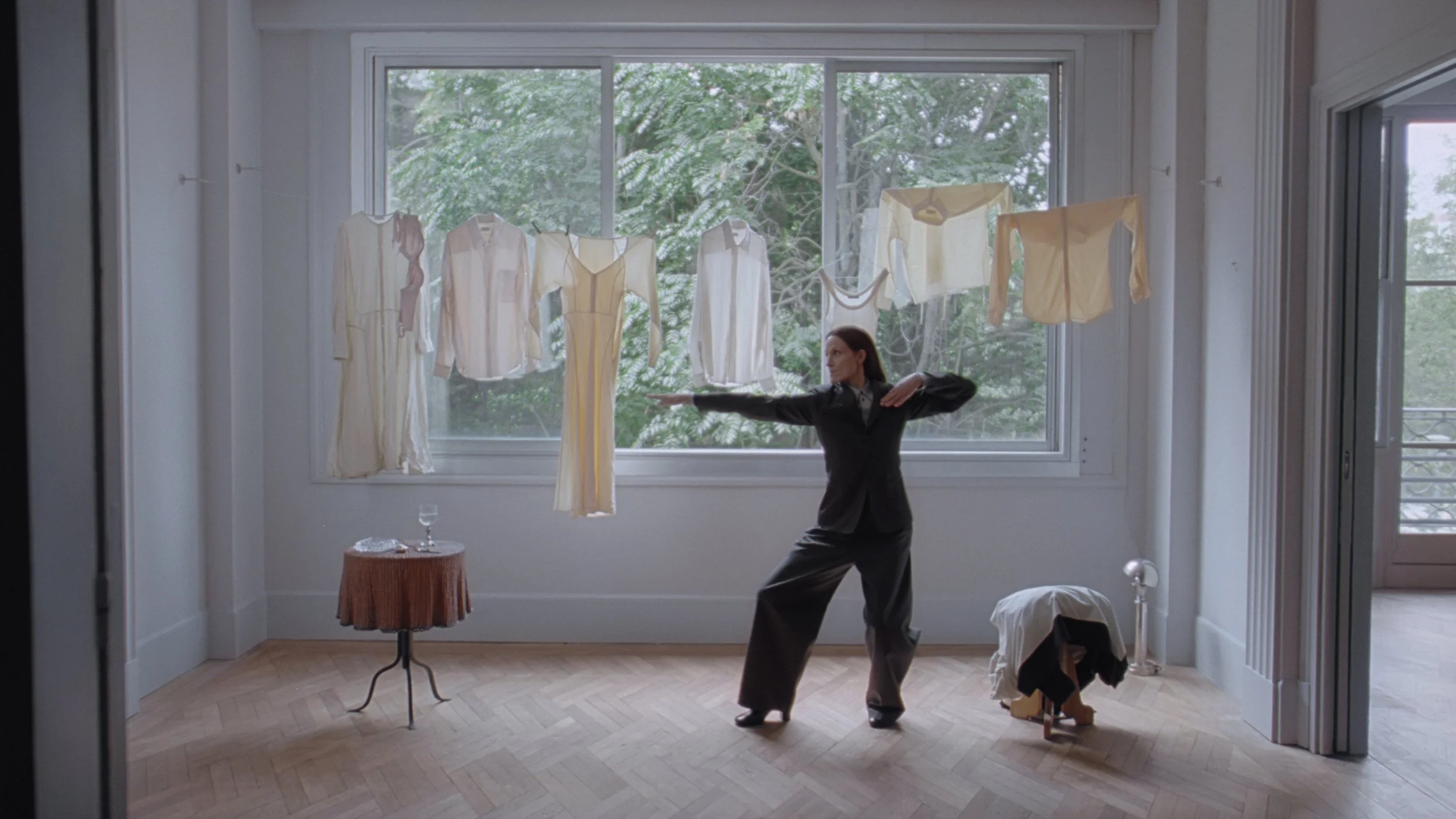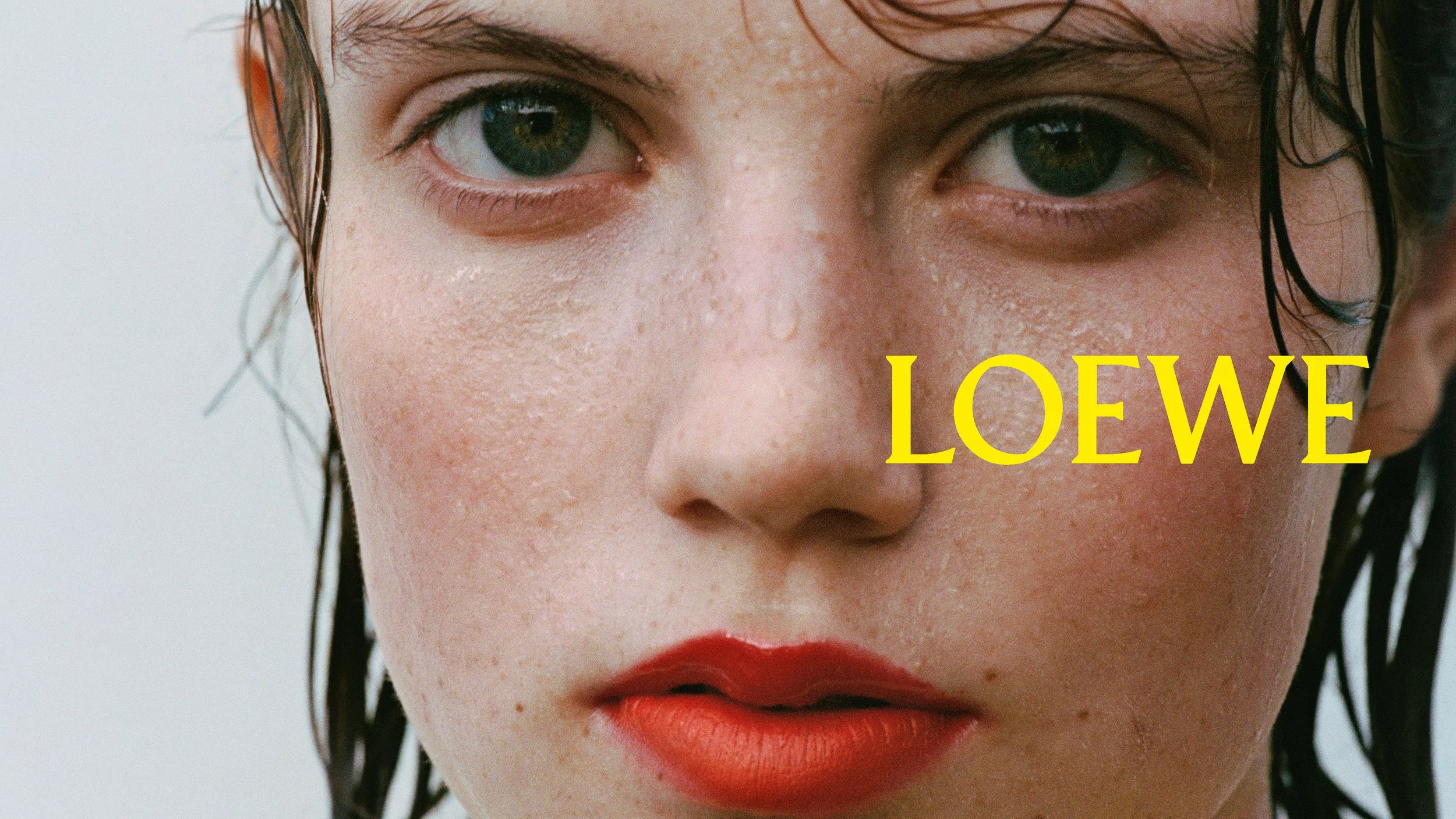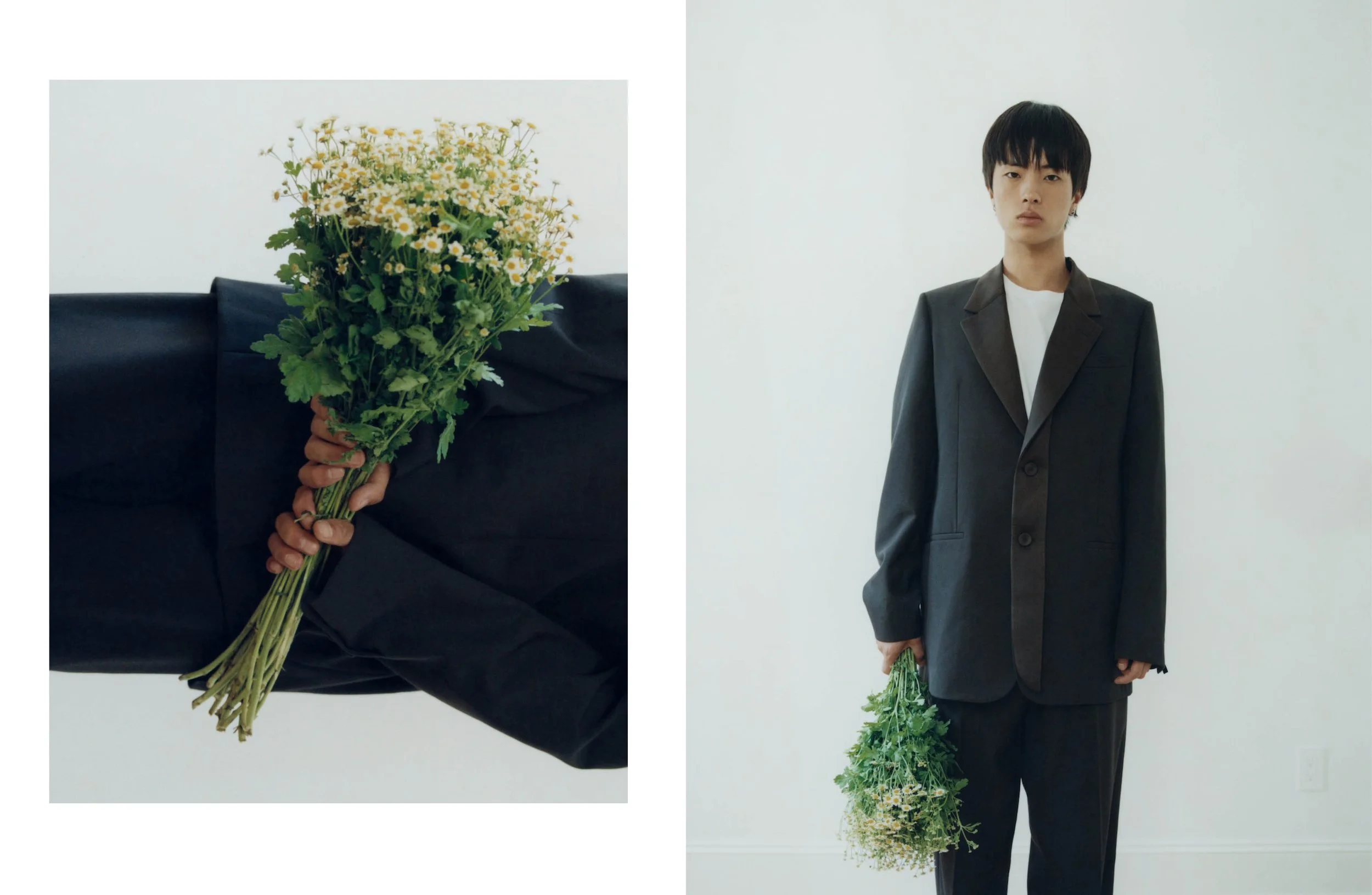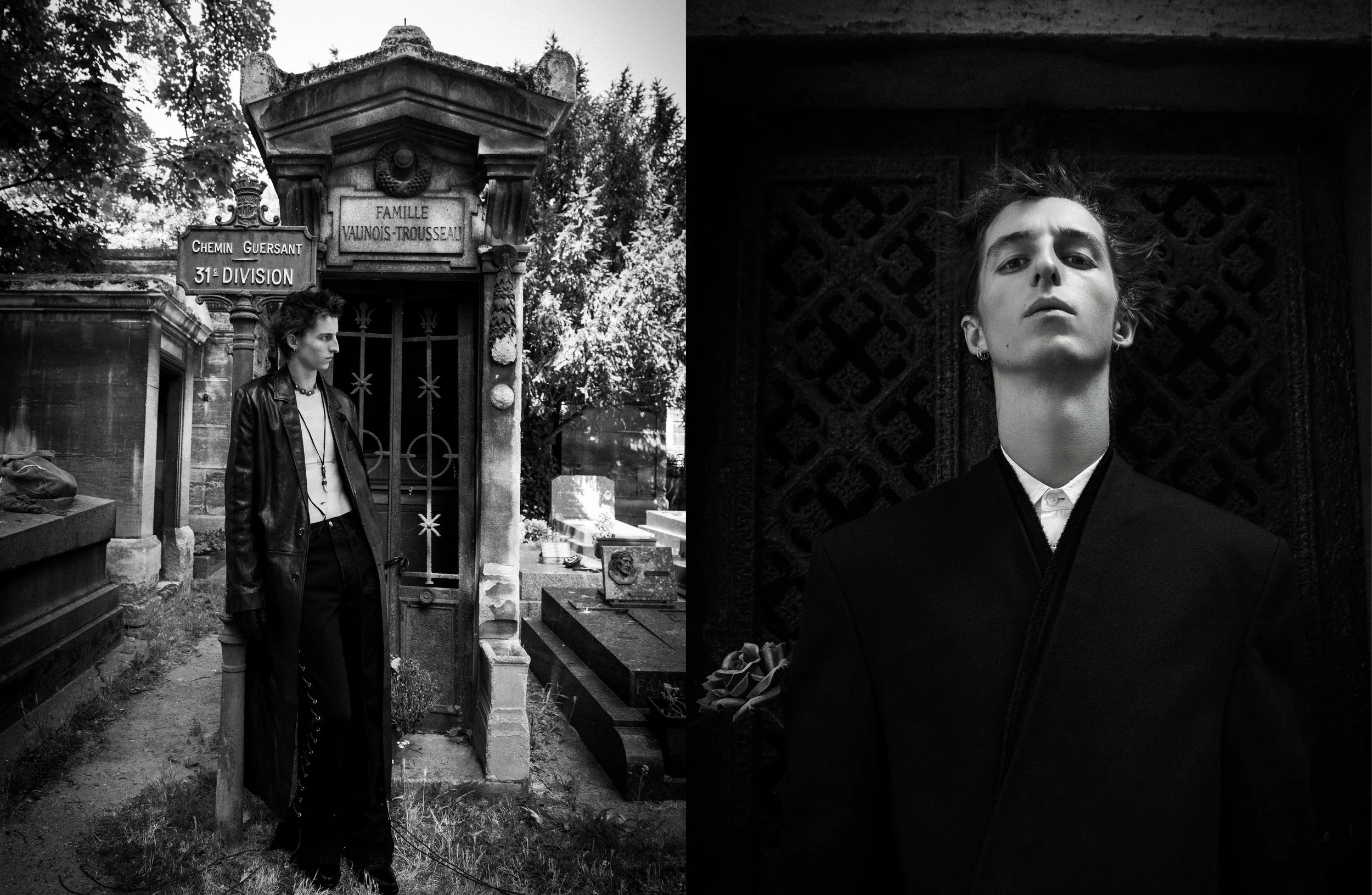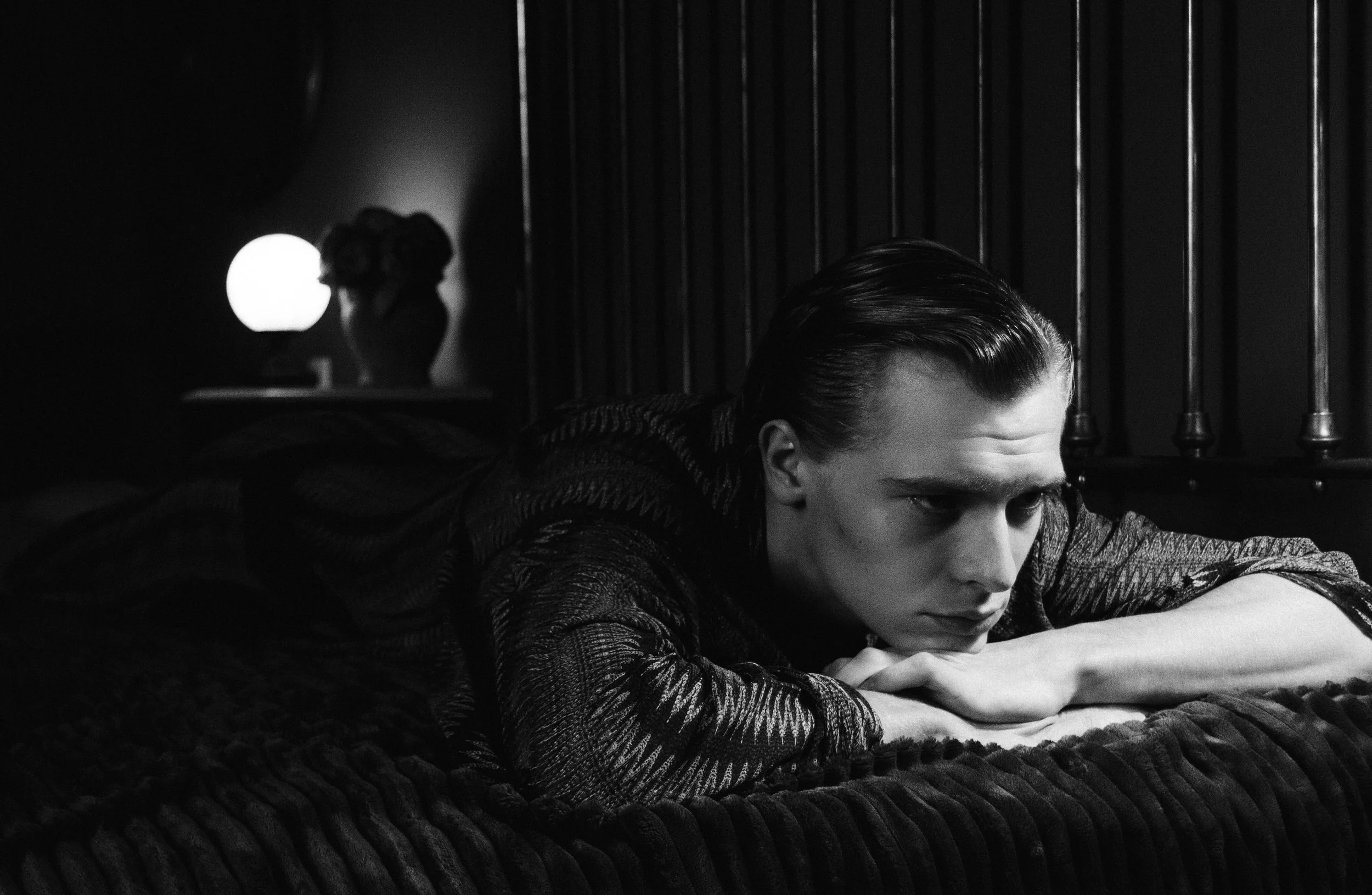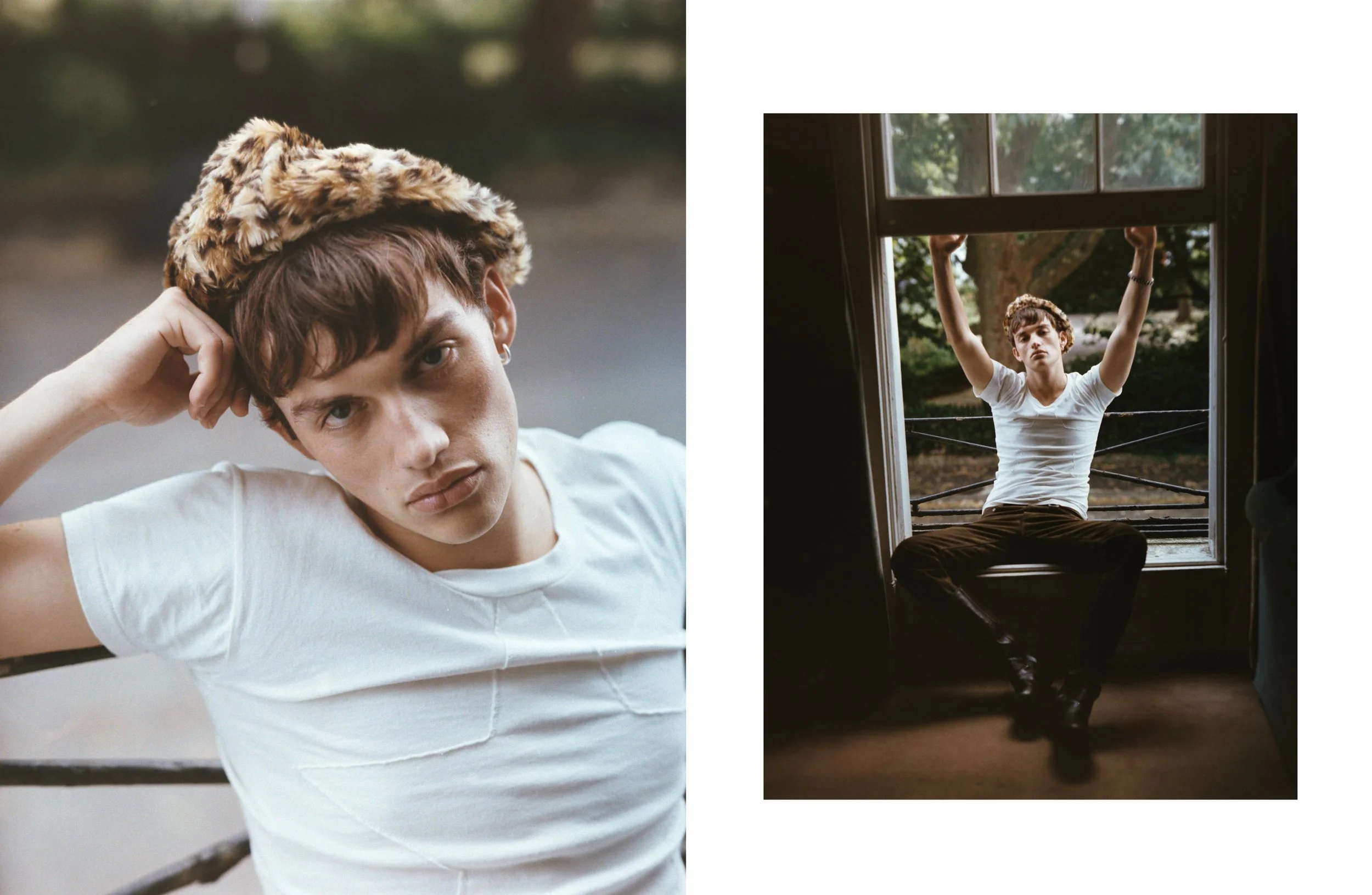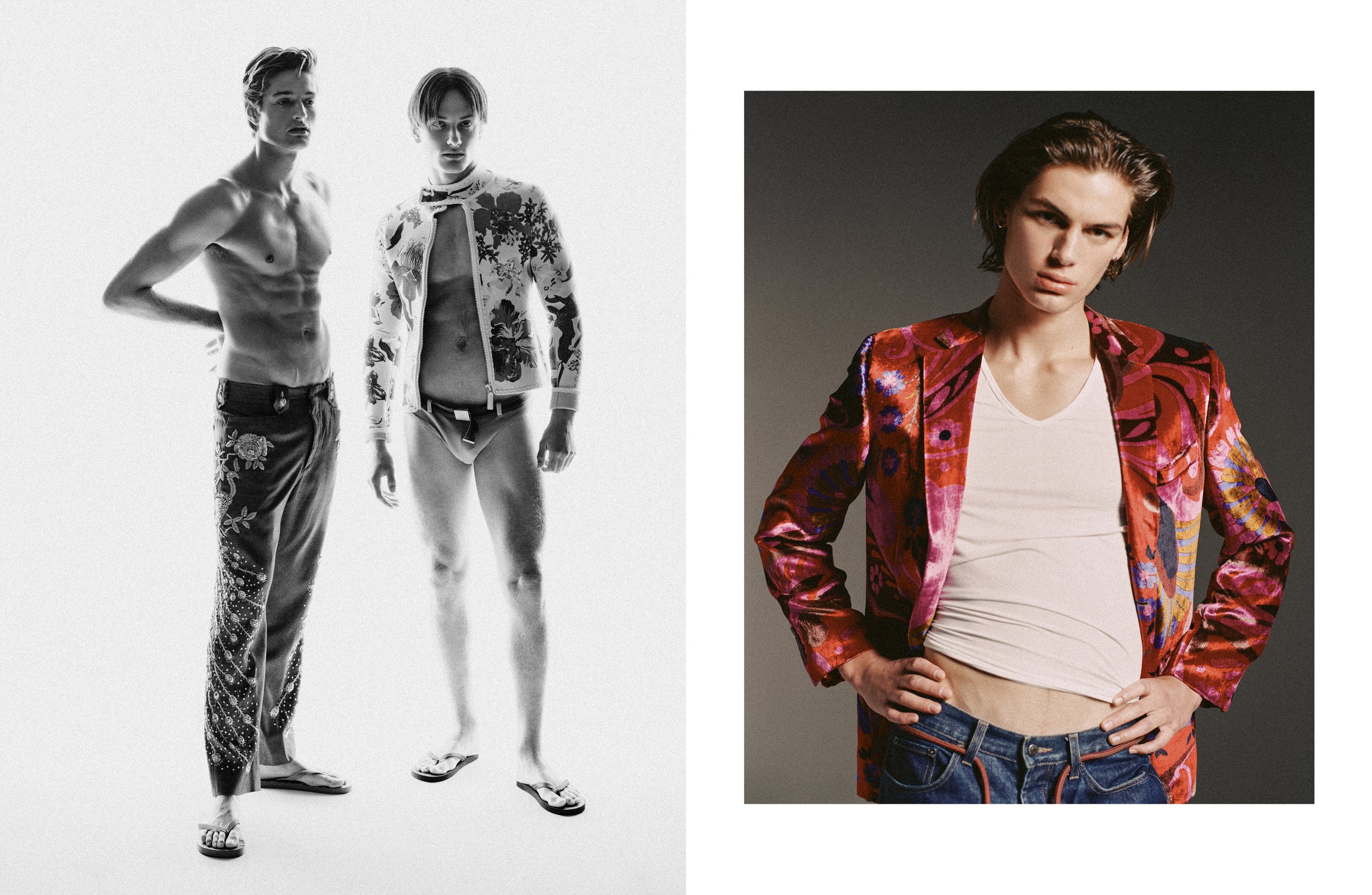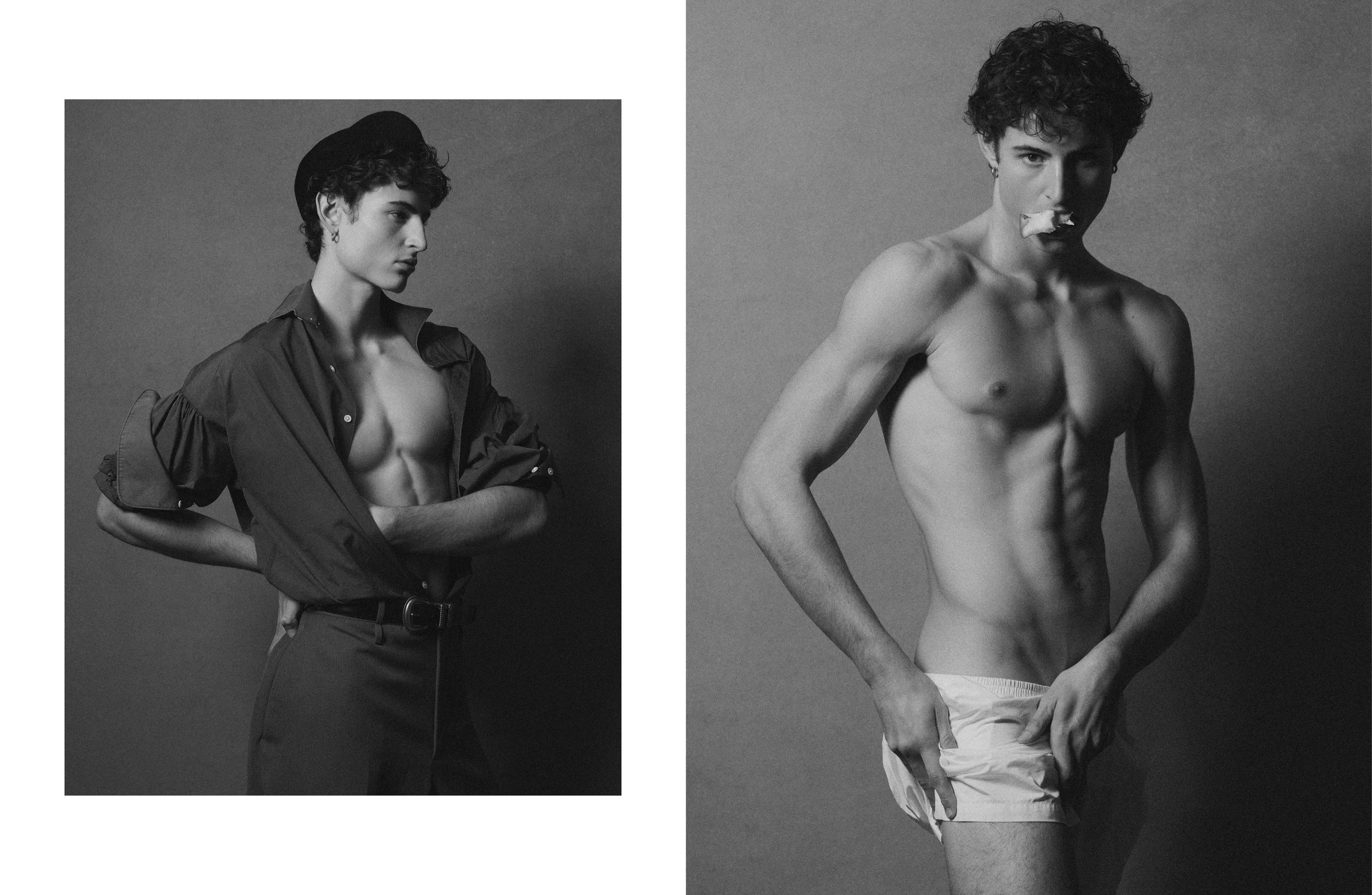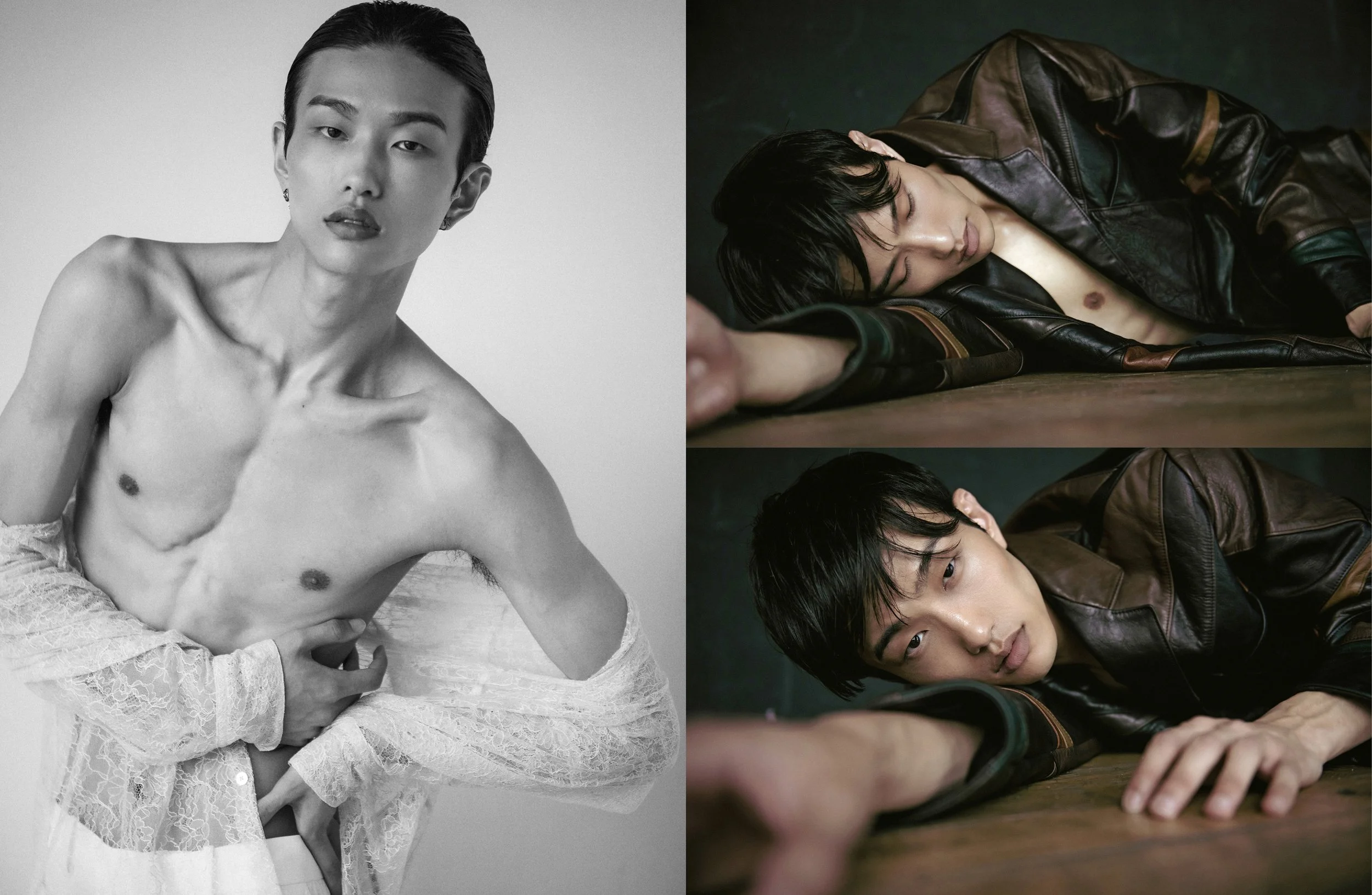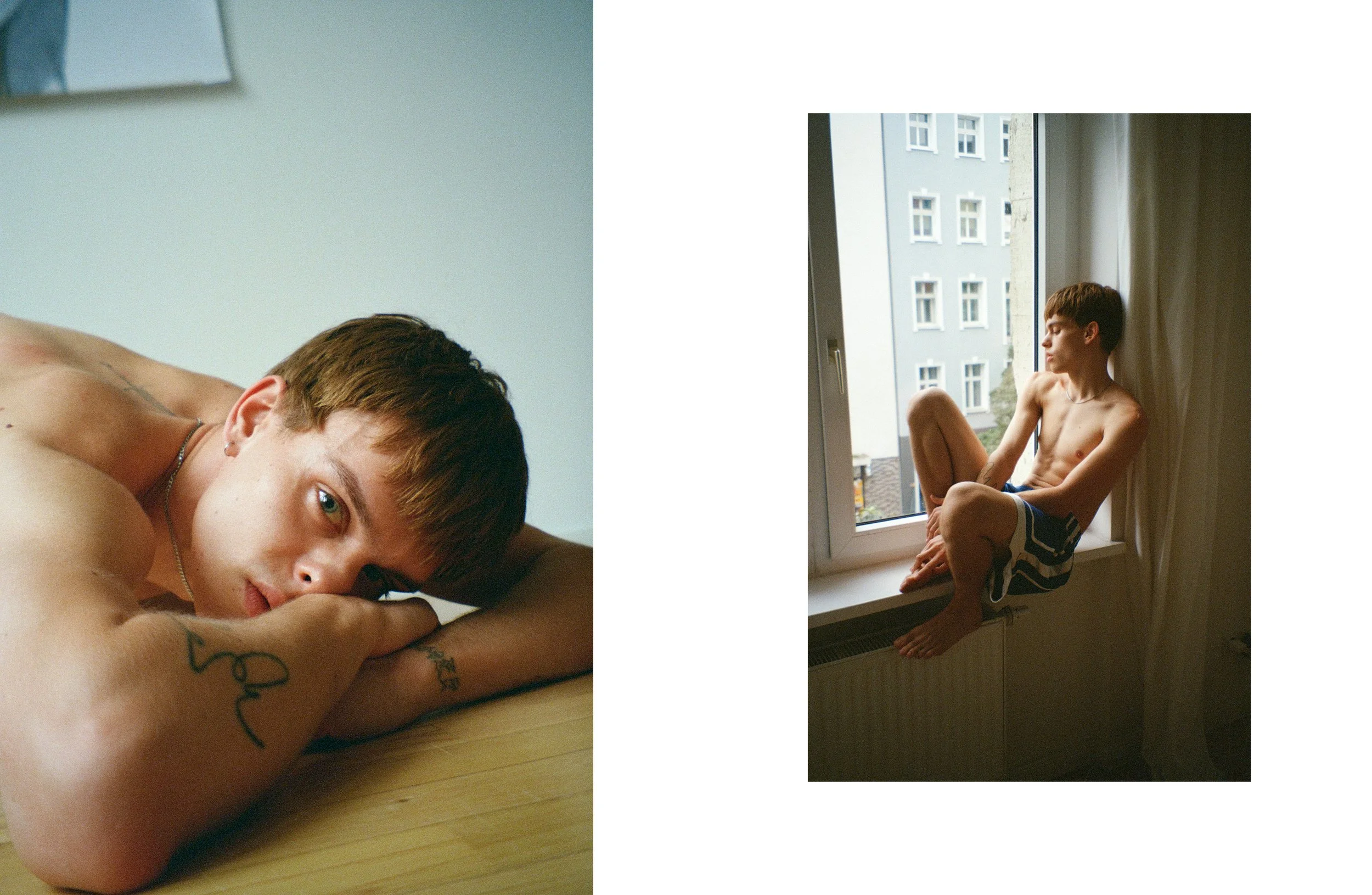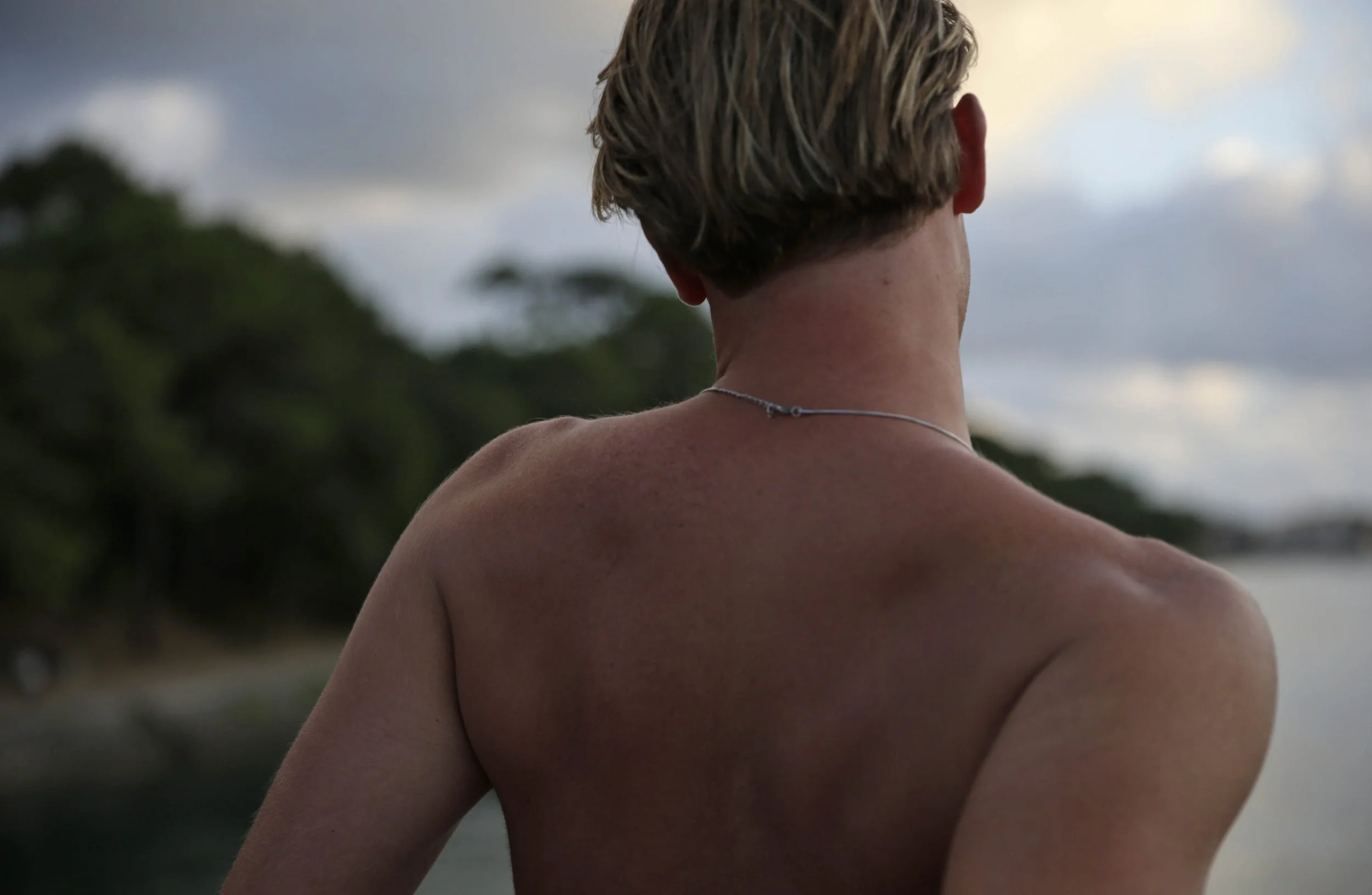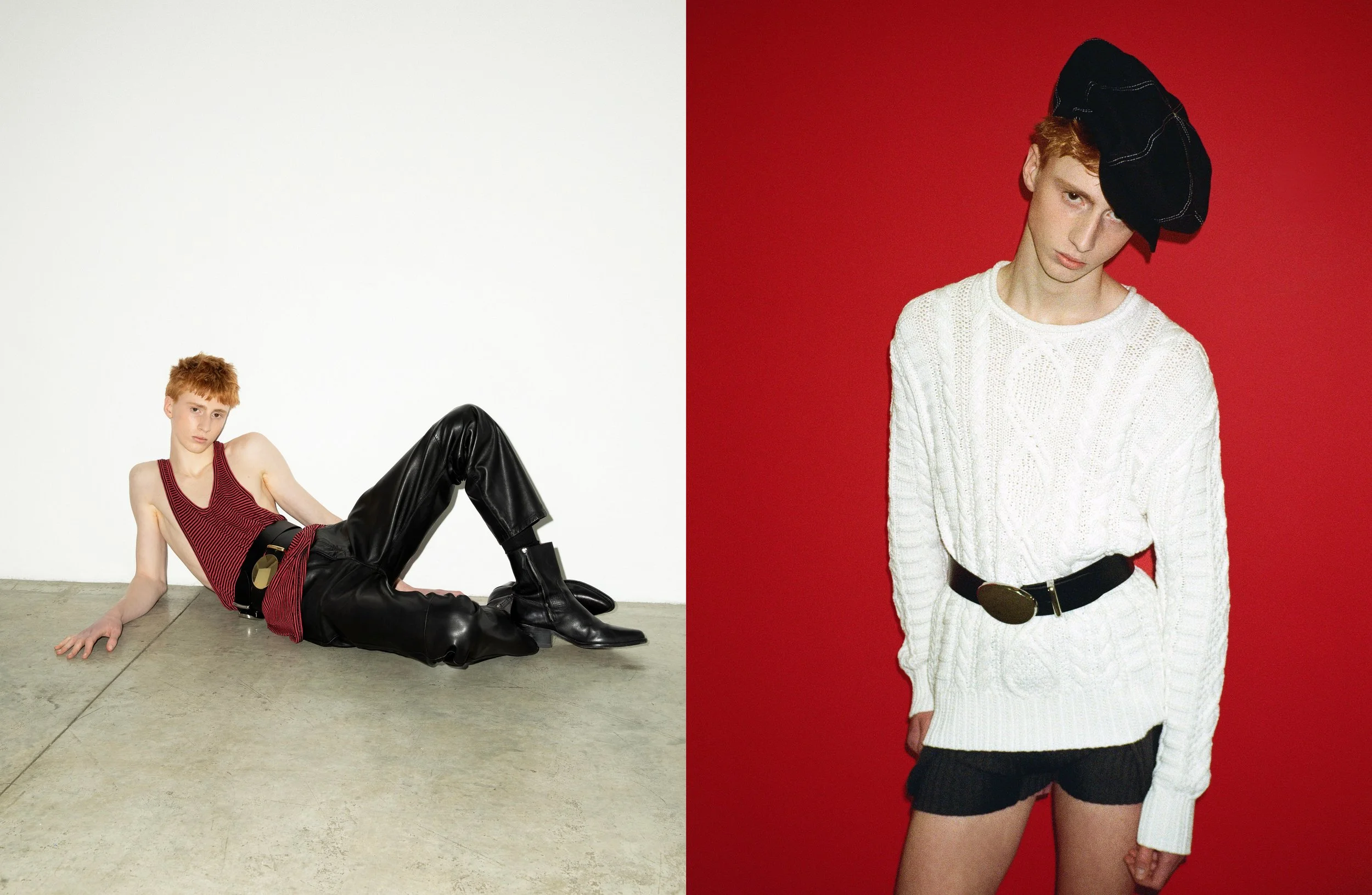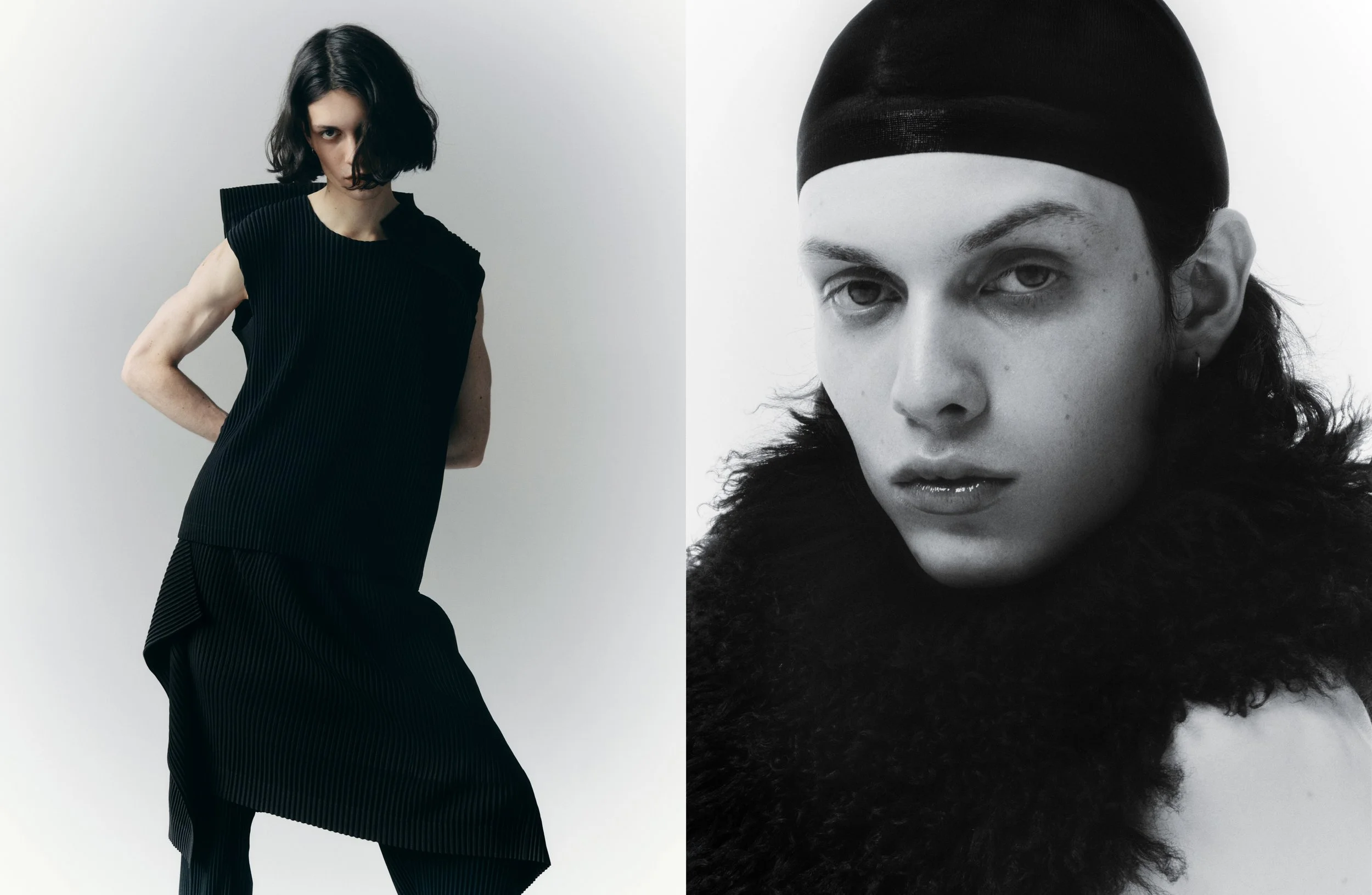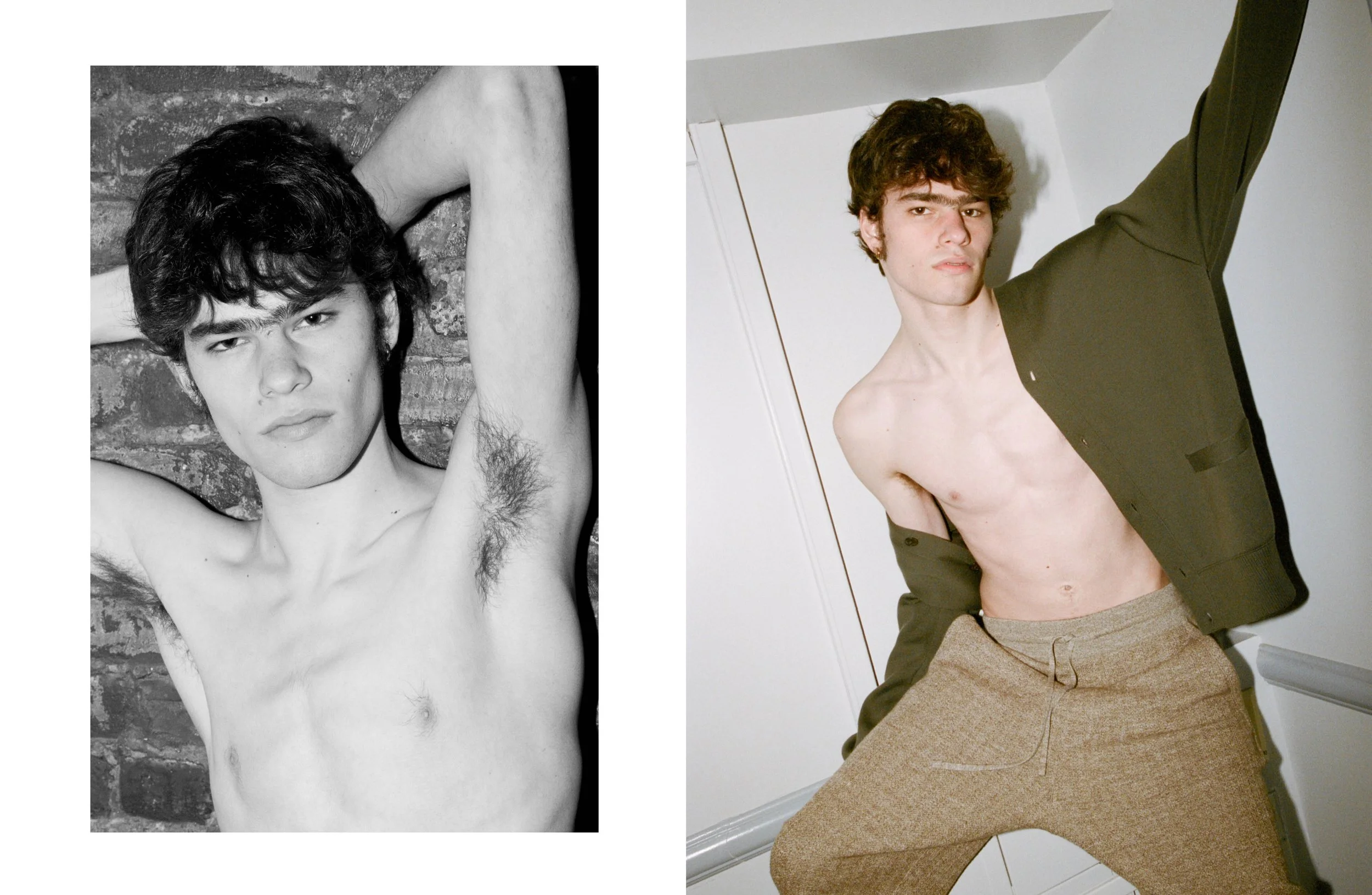OULAYA AMAMRA, WHO WON THE CÉSAR AWARD IN 2017 FOR HER BREAKOUT ROLE IN DIVINES, CONTINUES TO IMPRESS WITH HER TRANSFORMATIVE APPROACH TO ACTING. FOLLOWING THE RELEASE OF ANIMALE LAST NOVEMBER – HER THIRD COLLABORATION WITH DIRECTOR EMMA BENESTAN, WHERE SHE IMMERSED HERSELF IN THE WORLD OF BULLFIGHTING – AMAMRA IS NOW TAKING ON AN AMBITIOUS NEW PROJECT. IN TOUTES POUR UNE, ALONGSIDE HER BEST FRIEND AND FELLOW CÉSAR WINNER DÉBORAH LUKUMUENA, AMAMRA UNDERWENT A COMPLETE TRANSFORMATION TO PORTRAY A FEMALE D’ARTAGNAN. THIS INTENSE PREPARATION INCLUDED "DRAGGING UP" AS A MAN, WORKING WITH A VOICE COACH, LEARNING SPANISH, HORSEBACK RIDING, SWORD FIGHTING, AND EVEN MASTERING THE FLUTE. WE CAUGHT UP WITH AMAMRA TO DISCUSS THE CHALLENGES OF BRINGING HER CHARACTER’S IDENTITY TO LIFE, SEARCHING FOR GENEROUSNESS IN HER PERFORMANCES, AND SHINING A LIGHT ON WOMEN’S ISSUES WITH HER UPCOMING PROJECT.
Left Pants and top The Frankie Shop, shoes Acne Studios, ring Boucheron
Right Bra Proenza Schouler, pants Loewe, necklace around the waist Messika
Toutes pour une, your second film with your sister Houda Benyamina, is being released this month, bringing you together for a second time after the fantastic film Divines. The film is based on the famous novel by Alexandre Dumas, a story we're all very familiar with. How does this adaptation differ from its source?
It’s inspired by but it's completely revisited. It's new because we've never seen women musketeers before. In films from this period, women either serve or are lovers, but they're not really heroines. At least not in the films I like. And Houda has completely revisited that and I think that's what cinema allows, it allows us to say that yes, we can have women musketeers, we can and it's not a question of the fact that we're women of colour, it's not a question, it's a story. What it tells is above all a story of friendship, a bit like Divines. It's a story about sisterhood and she uses Dumas and everything we know only as a context.
Blazer The Frankie Shop, tank top Bottega Veneta
When you were younger, was working with your sister something you always wanted?
Honestly, it just happened. She was a drama teacher and she started an organisation called Milles Visages. I was thirteen or fourteen and I had no idea that I wanted to act. I actually wanted to be a paediatrician. But she didn't have any students, so she took me and my brother and said, “Well, I need pupils so I can give lessons,” and we never left.
Was she a good teacher?
She was. I thought to myself, “No, I can't stop here, she passed her passion on to me”. But we never spoke about it. For Divines, she didn't want me to audition, but I had to. On audition day, she was like, “‘What are you doing here?” I think she was afraid because it's a job that you have to be passionate about. It's so random because you depend on the desires of others, and it can be painful if you're not passionate.
Left Blazer The Frankie Shop , Pants Proenza Schouler, tank top Bottega Veneta, rings Gemmyo, shoes Mi/Mai
Right Suit Givenchy, earrings Messika
Which heroine did you draw inspiration from in preparing for this role?
Frankly, it was more from heroes because I had to cosplay as a man and there was some real physical work involved. I felt like I had to pick a man. I watched a lot of Brad Pitt, Pacino, De Niro.
Full look Lanvin
Your character Sara is a young Morisco woman, who unmasks the three musketeers protecting the Queen of France and decides to hang on to these powerful women and their brilliant ideals. How did you prepare to play her?
By researching, I learnt all about the history of the Moriscos, who were expelled because they were Muslims. I read and spoke a lot with Houda. I also put a lot of myself into it because I'm Oulaya in 2024, but I'm also an Arab in a complicated political context. So I didn't have to look too far. All these characters, you see it in Divines as well, they are the same, they are people who are excluded from society. People we don't look at, who feel alone and who, as a result, are looking for something, and Houda often does this through friendships, like looking for a family. And Sara, she's going to find her family and they happen to be these women.
Bra Proenza Schouler, pants Loewe, shoes Mi/Mai, necklace around the waist Messika
What does the motto of the film – “To transform in order to be free, to transform in order to be yourself”– mean to you?
That's the question: Who are we really? A question that's too deep to answer. It's what life is about: identity. Sara is rooted in her Morisco background, which is what makes her who she is, her origins and her parents who were killed. And when she’s told that she’s not Spanish anymore, that she has to learn French, she’s denying a part of herself. That's something that follows us, our parents’ stories, and their parents’ stories. That's why I’m more affected by certain stories. For example, people who are hunted, people who suffer injustice, sometimes it touches a part of my flesh and I ask myself why. Because my father lived through the Algerian war and he too was chased out and colonised. It all stays with you. It's no small thing to be told to forget where you come from, to forget your language, to forget all that you know.
Left Full look Givenchy
Right Tank top Bottega Veneta, necklace Messika
Emma Benestan, who you worked with on Animale describes your acting style as elegant and subtle. What were your inspirations when you were young?
Romy Schneider, Isabelle Adjani, Penélope Cruz, Frances McDormand, Viola Davis. Actresses who are generous. They are gritty, they show you what's bad in human beings, but at the same time what's beautiful, and they don't keep it to themselves, they give it all away. They're going to sweat, and I think I want to be like that, I don't think I can be otherwise.
La Maison des Femmes will be released in 2026, it’s a film that discusses women and abuse, can you tell us a bit more about the project?
We just finished filming. It's about a women's centre in Saint-Denis that was created in 2019, where women who have been beaten, raped, excised, and are victims of abuse can go. There, midwives and police officers can take complaints directly, and it's linked to a hospital. Recently there was a law in France that came into action where they require one of these centres in each town. Clearly these are places that need to exist, and it's good that there's a film about them.
Full look Loewe
What does your role entail?
I play a doctor who goes in and I've got a bit of a spectator's point of view because I'm doing my internship, so I go into this women's home and, through my eyes, you get a feel for how things are going. I'm more of an observer and then I go and operate on women who've had excisions.
And what do you want people to take away from this film?
First of all, I want them to realise the extent to which (abuse) can come from anywhere, that you have to be vigilant, and that when we have someone around us who is suffering from abuse, we should not hesitate to try to help them talk about it, to advise them to go to these shelters because they have services where they can feel safe. If it pushes people to do that, then we’ve already won something.
Left Coat Jacquemus
Right Suit Givenchy, earrings Messika
Interview by Gabrielle Valda Colas
Photography by Hanna Pallot
Fashion by Thomas Turian
Hair by Philippe Mensah
Make-Up by Chynara Kojoeva
Stylist’s assistant Ali Marashi
